Learning English with Human Beans
Welcome to "Learning English with Human Beans," where language learning meets social sciences! Dive into fascinating human behavior topics while naturally improving your English skills. We explore current research from psychology, sociology, anthropology... unpacking key vocabulary and expressions along the way. Each episode combines engaging social science concepts with practical language learning, helping you communicate with confidence about complex human topics. Grow your English skills through the lens of what makes us human!
#30 - Deconstructing "It Was Better Before" - Pt. 2
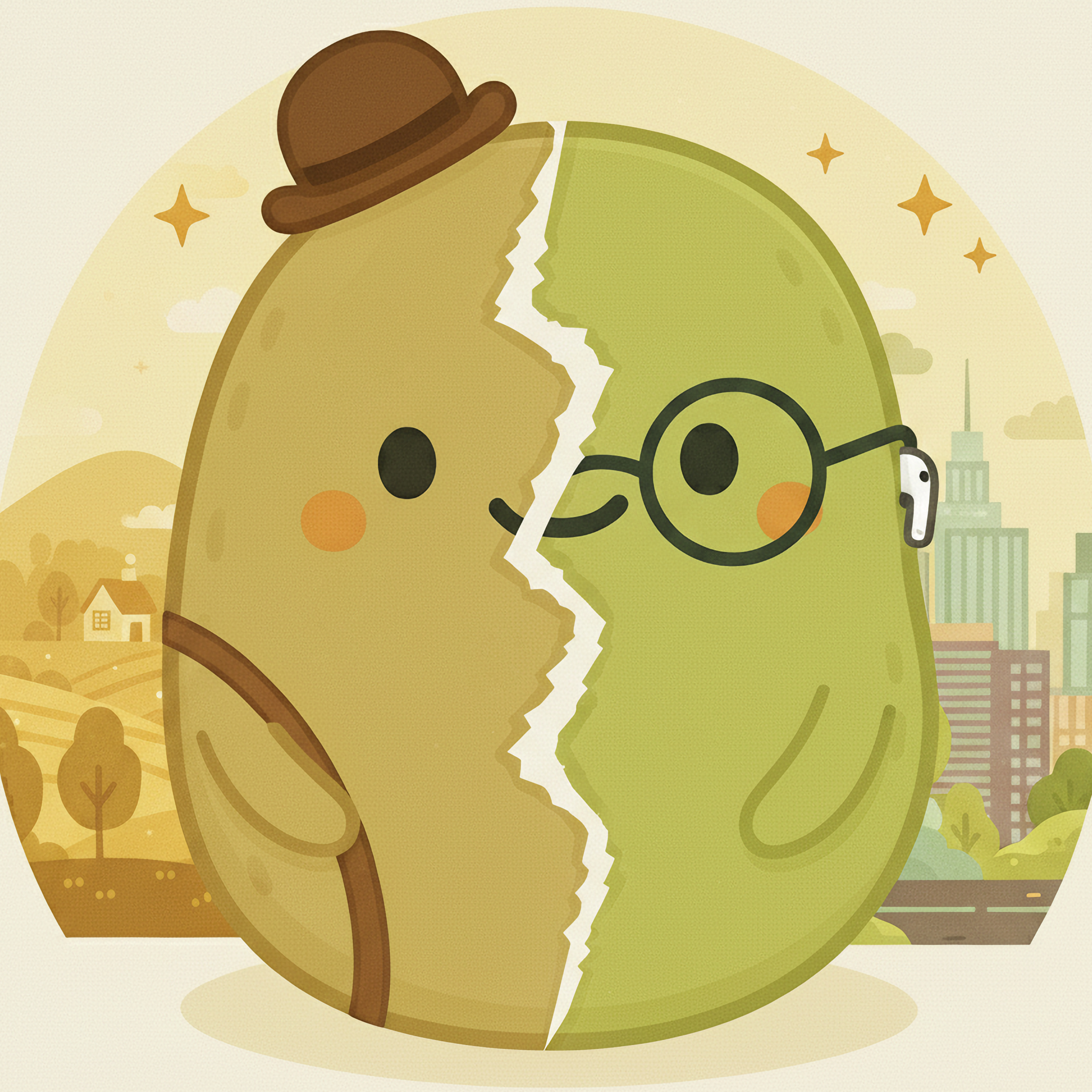
"Memories lie, but statistics don't." In this data-driven episode, Alice and Marc set aside emotions and personal anecdotes to examine the cold, hard facts about how life has actually changed over the past century.
From life expectancy and workplace safety to education access and women's rights, every measurable aspect of human existence tells the same story: we're living through what might honestly be called the golden age of humanity. The question isn't whether the data proves life is better now—it's why our brains are so convinced it was better before.
Perfect for English learners wa...
#29 - Deconstructing "It Was Better Before" - Pt. 1
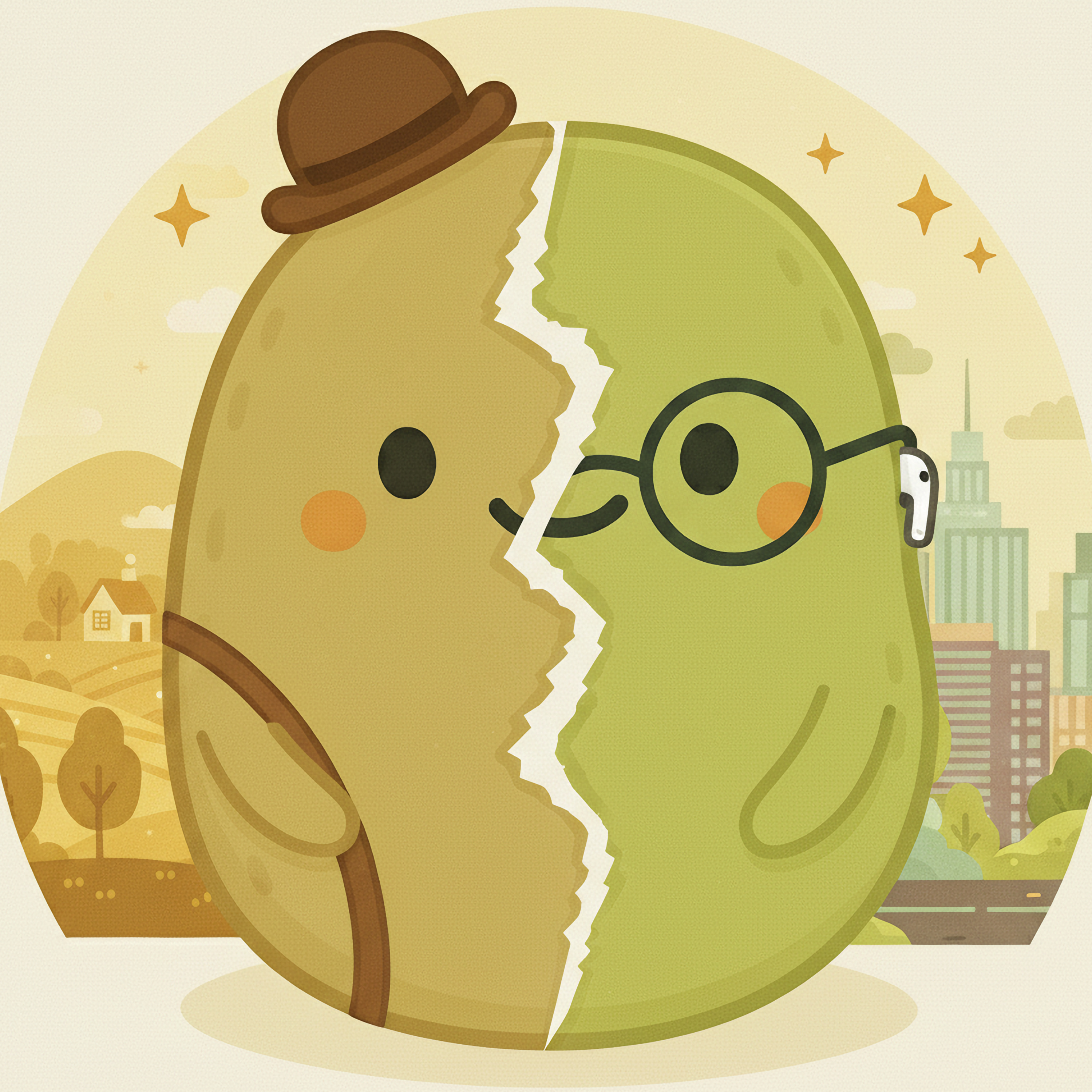
Do you ever think music was better in the past, or that people were more polite when you were younger? You're not alone. Today, we're exploring "The Architecture of Nostalgia"—why our brains are wired to believe things were better before, even when they probably weren't.
I'm Alice, and joining me is Marc, a sociologist who studies how we construct meaning from our experiences. Together, we'll uncover why every generation thinks the next one will destroy civilization, how our minds edit memories like sentimental film editors, and why this beautiful human tendency can sometimes be exploited.
...
#28 - Walter White - Anatomy of a Tragic Overcompensation
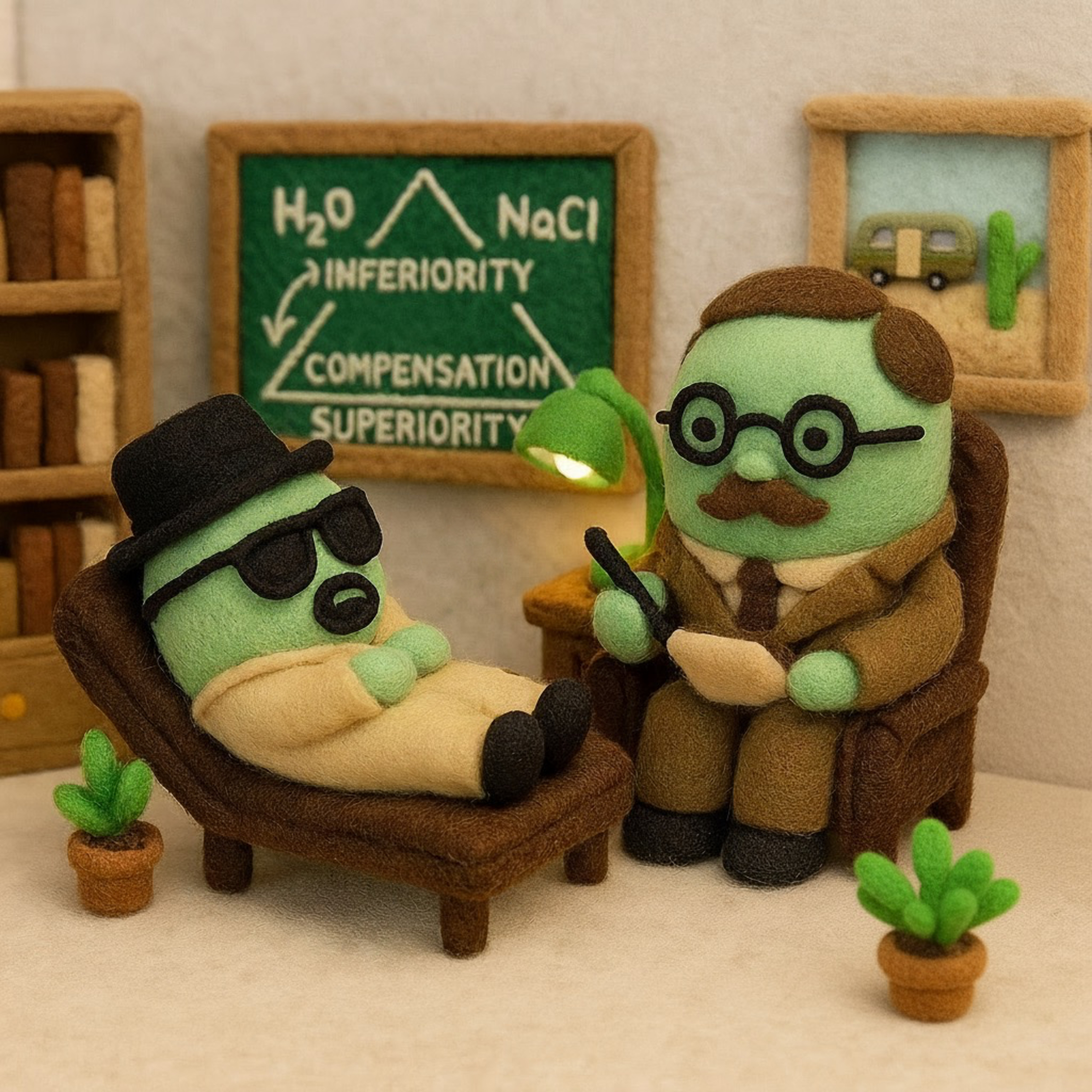
What do a mild-mannered chemistry teacher turned drug kingpin and a pioneering psychologist from Vienna have in common? In this episode, we dive into the psychological transformation of Walter White—Breaking Bad’s iconic antihero—through the lens of Alfred Adler’s individual psychology.
Alice and George explore how Walter’s descent from overlooked teacher to ruthless Heisenberg perfectly embodies Adler’s theory of the inferiority complex and overcompensation. Drawing on Adler’s ideas—like the drive for superiority, the danger of unresolved inferiority, and the importance of “social interest”—the hosts unpack the hidden motives behind Walter’s choices, the...
#27 - Wolf Children
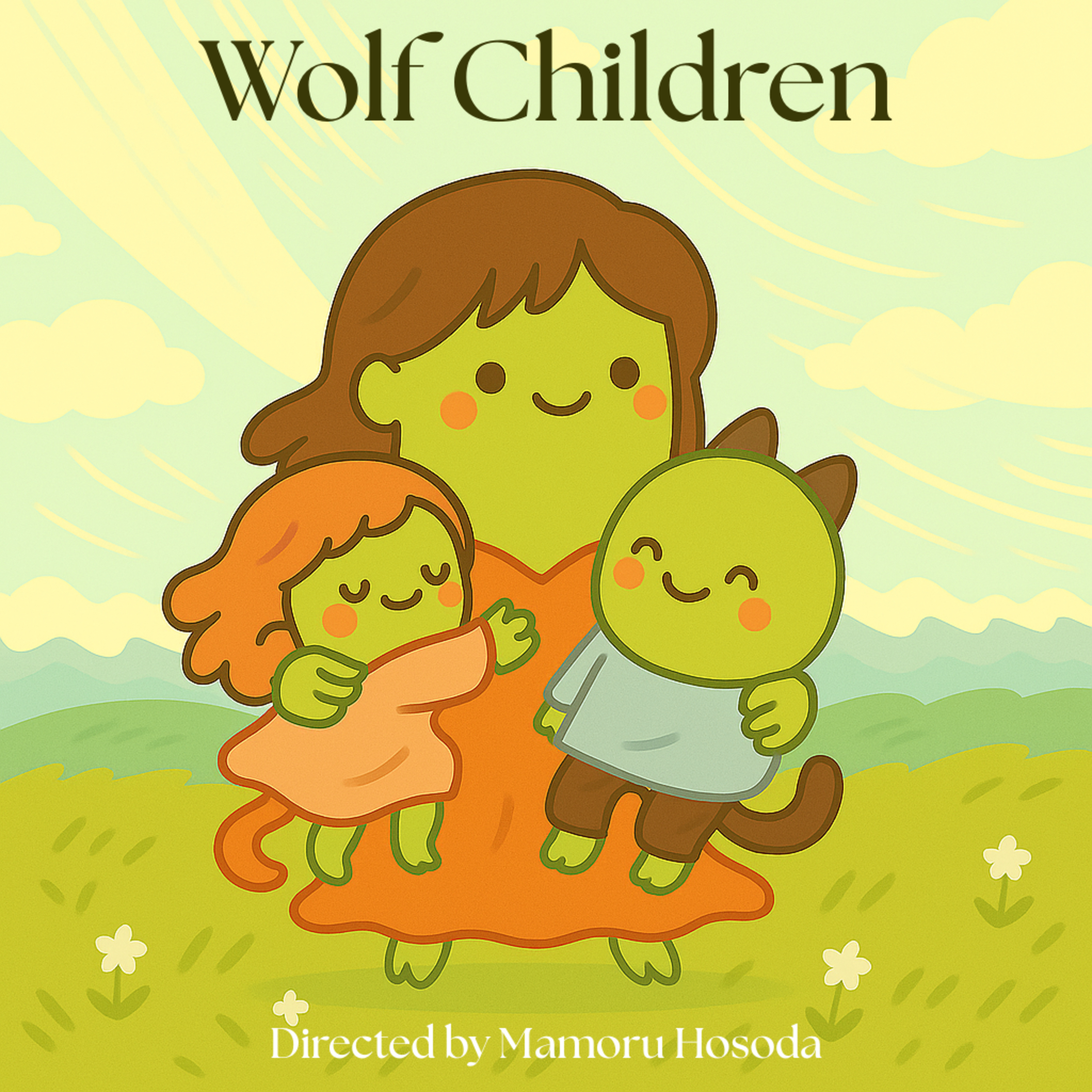
Dive into the poetic world of Mamoru Hosoda's Wolf Children. George and Alice explore how this modern fable questions our identity choices: should we adapt to belong or stay authentic at the risk of isolation?
Through Hana's journey as a heroic single mother and the surprising evolution of her children Yuki and Ame, discover a profound reflection on motherhood, difference, and the courage to accept that true love sometimes means letting go of those we cherish.
With integrated English vocabulary to enrich your discussions about identity, family, and self-acceptance.
#26 - Sentimental Value
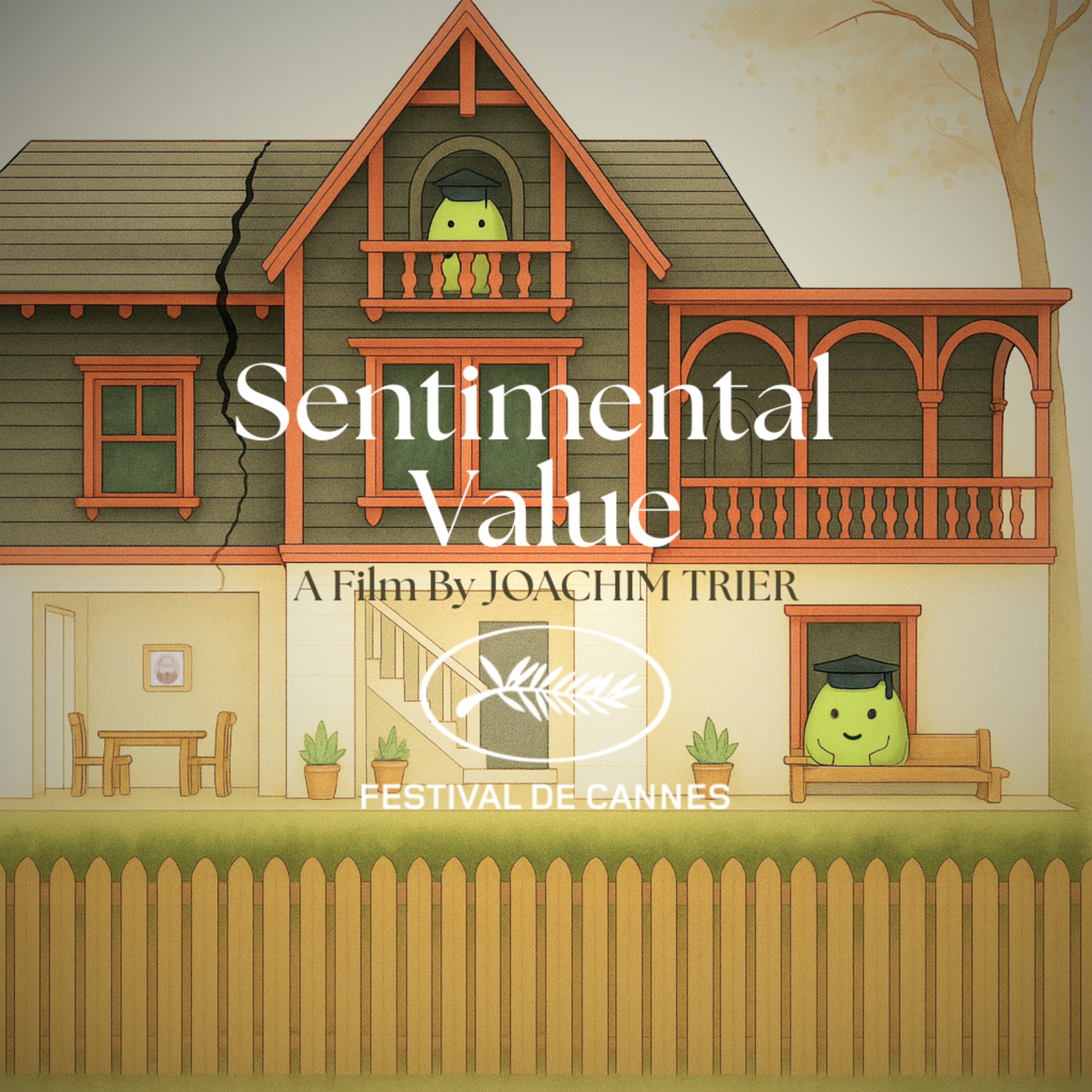
Can art truly heal family wounds, or does it sometimes make them worse? In this deep dive into Joachim Trier's acclaimed film Sentimental Value, George and Alice explore a story that challenges everything we believe about creativity and healing.
When filmmaker Gustav Borg returns to his family after years of absence, he brings not apologies, but a movie script about their shared trauma. As three generations of pain echo through a haunted Oslo house, the film asks uncomfortable questions: Can you be a brilliant artist but a terrible father? What happens when trauma passes from grandmother to f...
#25 - The Genius Illusion - Pt. 3
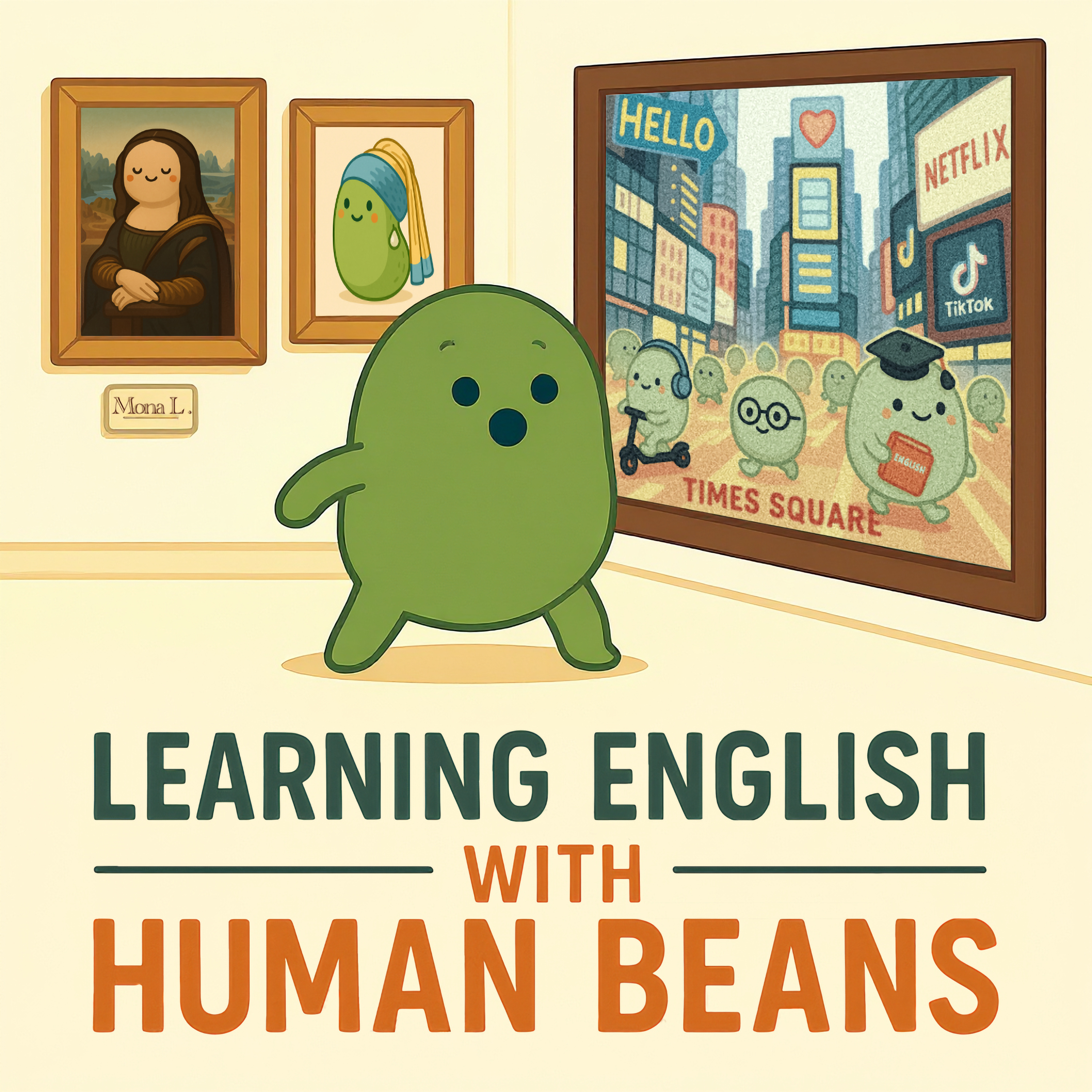
What if the biggest obstacle to recognizing genius today... is our own brain?
In the final installment of our "The Genius Illusion" trilogy, George and Alice explore the psychological and structural reasons for our nostalgia for a past filled with giants. Discover how cognitive biases, like "survivorship bias," systematically polish history to make it seem brighter than it truly was.
This episode finally reveals where genius is hiding in the 21st century: not in solitary heroes, but in collaborative networks and complex systems. Don't miss the conclusion of this debate that will change the way...
#24 - The Genius Illusion - Pt. 2
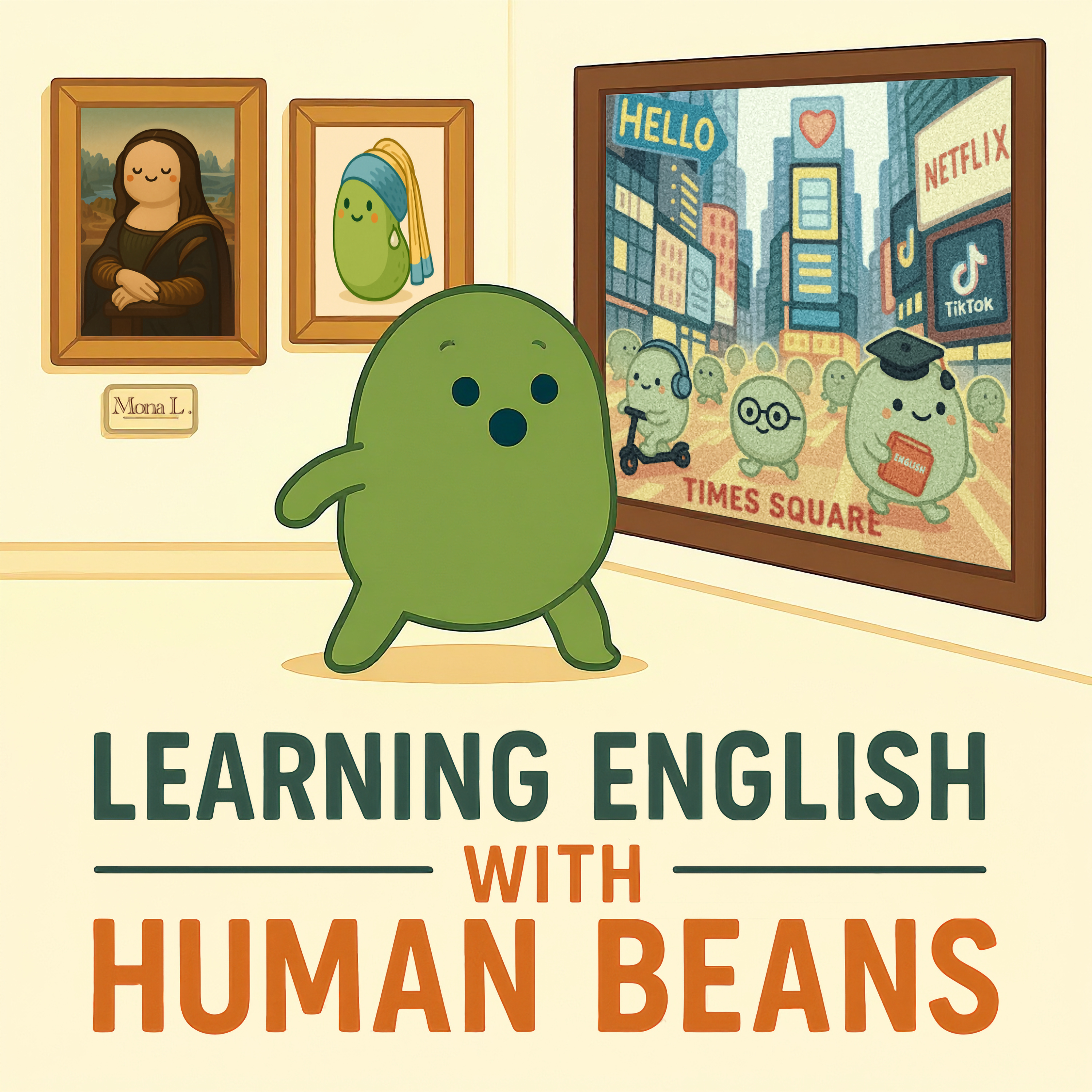
Is a genius born... or made? In this second installment of our "The Genius Illusion" trilogy, the debate intensifies.
After questioning the very definition of genius, George and Alice tackle its origins. George argues that even a talent like Newton's or Beethoven's is a product of its time, needing the validation of institutions to enter the history books. Alice, on the other hand, defends the "Great Man" theory—the idea of the exceptional individual who shapes their time.
This episode takes you behind the scenes of the "hero factory" to reveal the social and historical fo...
#23 - The Genius Illusion - Pt. 1
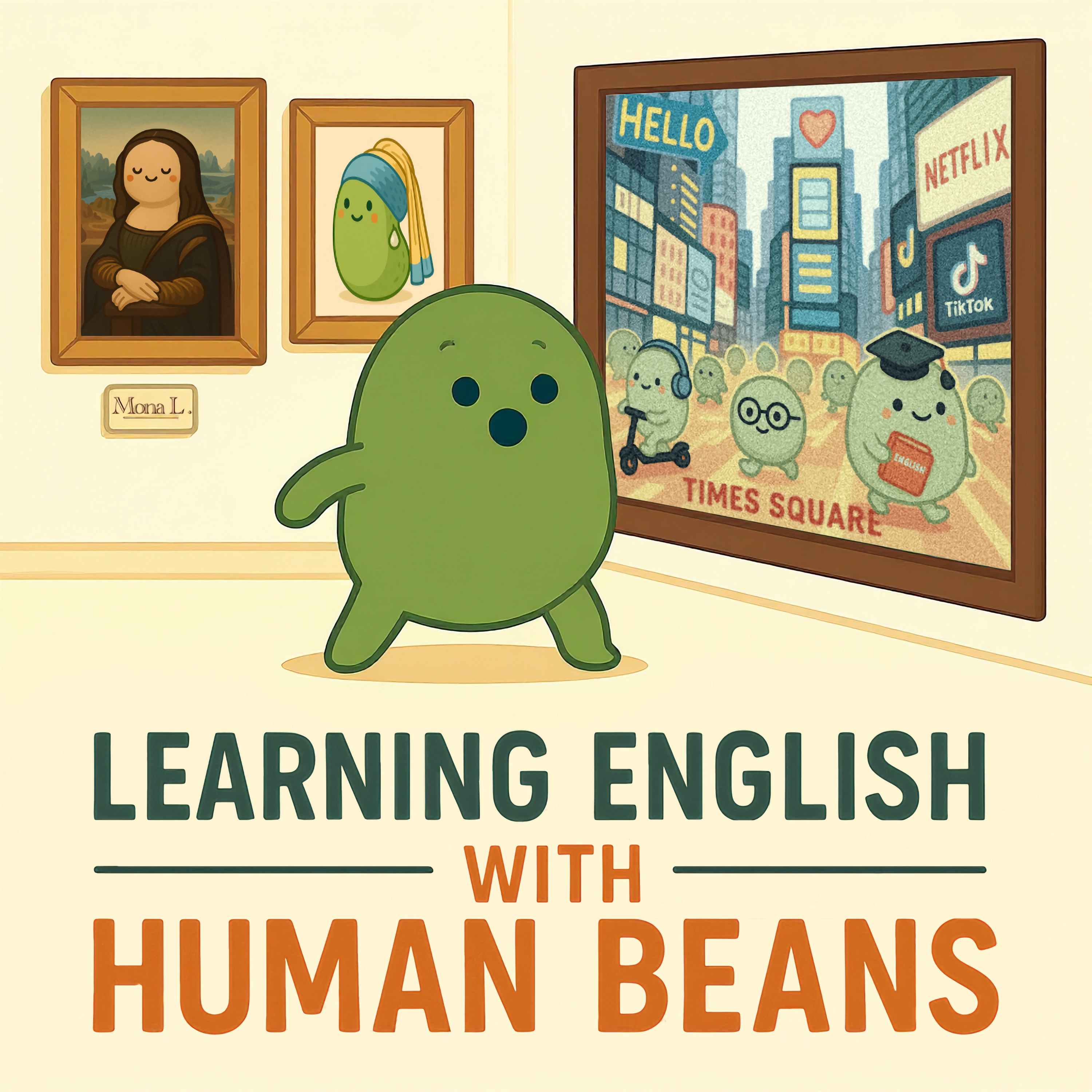
Before we can ask where all the geniuses have gone, we must first ask: what is a genius?
In the first of a three-part series on "The Genius Illusion," George and Alice embark on a historical investigation to deconstruct the very idea of greatness. They trace the surprising evolution of the concept, from the divine guiding spirits of ancient Rome to the modern cult of the solitary, suffering hero.
This foundational episode challenges our most basic assumptions, changes how you see the titans of the past, and sets the stage for the next two parts of...
#22 - ADHD: A Journey into the Distracted Mind
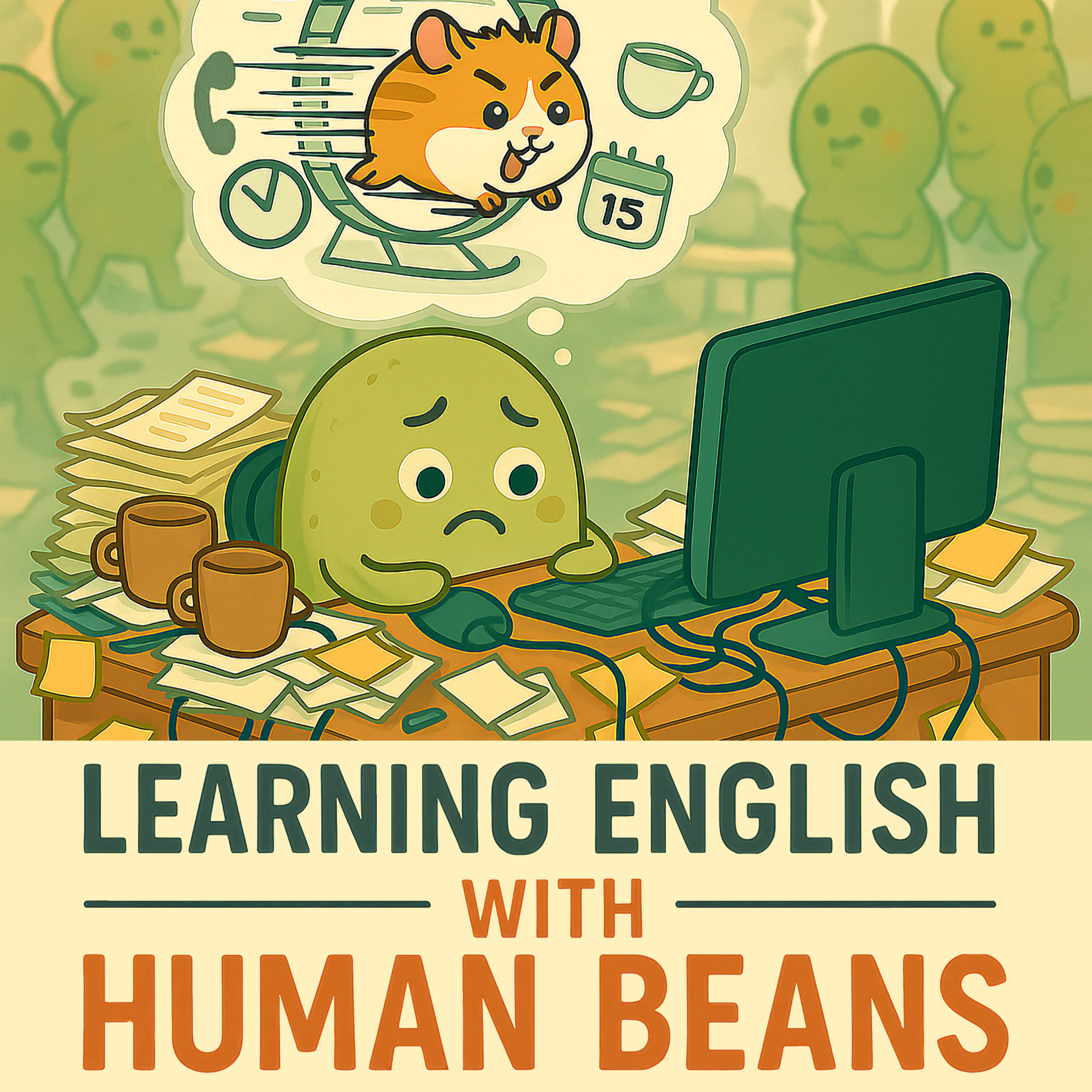
What if the biggest symptom of ADHD wasn't just distraction, but a silent, relentless internal monologue?
In this episode, George and Alice move beyond the stereotypes to explore the internal world of ADHD. They dive into the science behind the brain's "frantic hamster wheel" and discuss the real human cost of this common but misunderstood neurodevelopmental disorder.
Join them for an empathetic journey that will change how you see ADHD, all while learning key English vocabulary.
Sources:
Arnsten, A. F. T. (2009). Neuronal mechanisms underlying attention deficit hyperactivity disorder...
#21 - The Universe Inside - "The Life of Chuck"
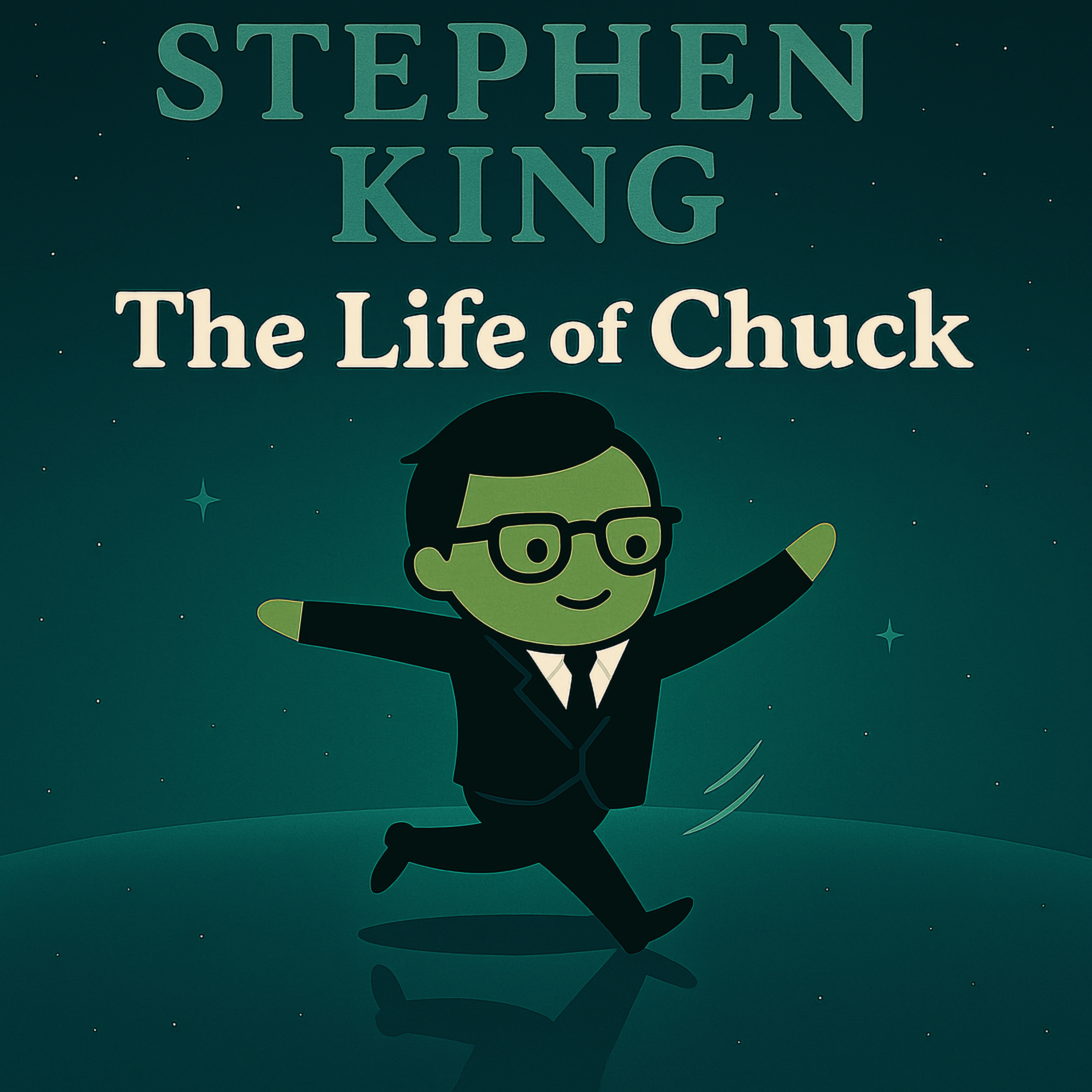
What if a Stephen King story wasn't designed to scare you, but to make you cry with joy? That's the bold premise of The Life of Chuck, a film that tells a life story... by starting at the end.
Join George and Alice for an in-depth discussion of this poignant Mike Flanagan adaptation. Discover how its inverted narrative structure reveals the hidden beauty in an ordinary life , and dive into its central philosophy: that every individual "contains multitudes."
#20 - The Age of Possibilities - Young Adulthood
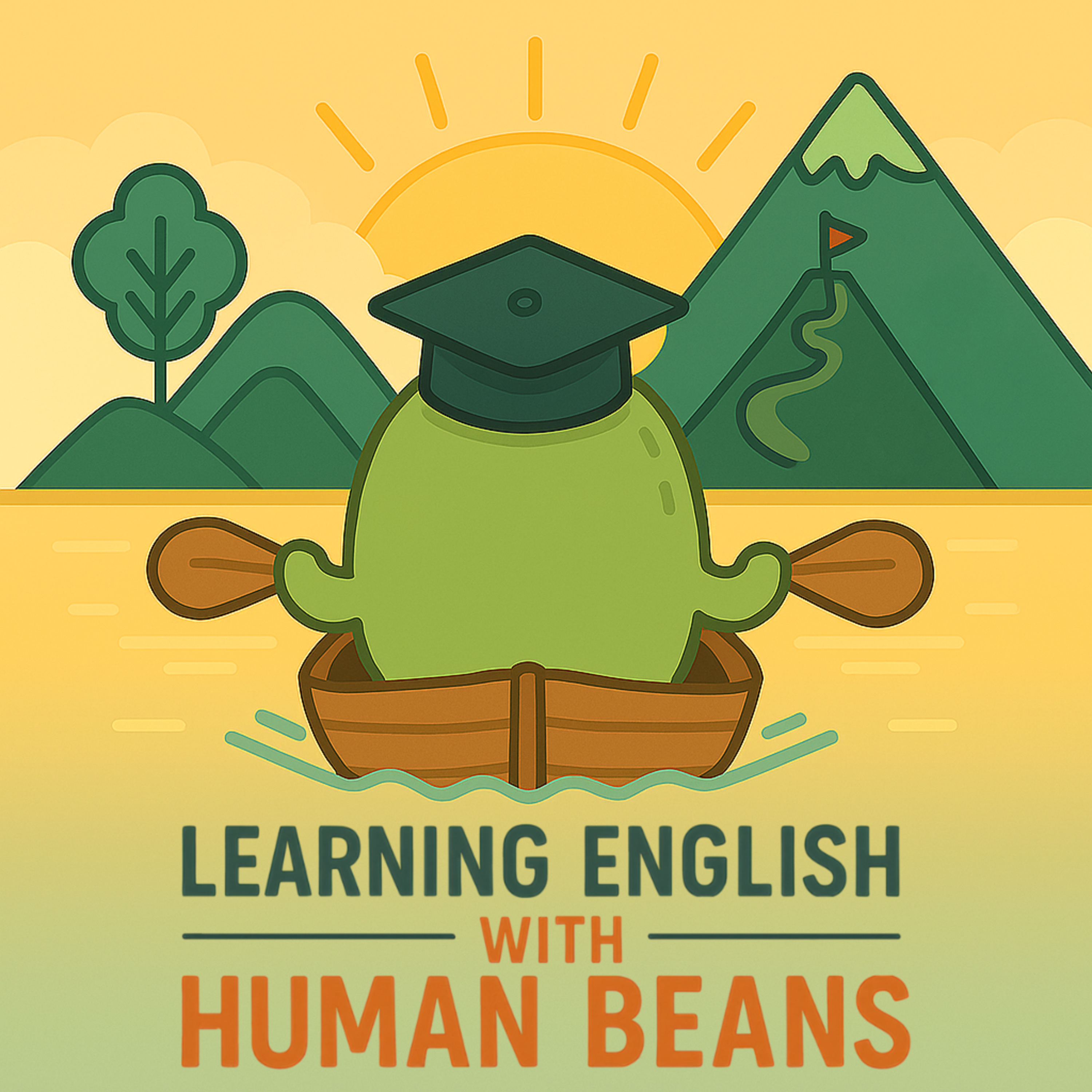
What if your twenties aren't just a prolonged adolescence, but a distinct and crucial new stage of life? Join George and Alice as they explore "Emerging Adulthood"—a time of neurological transformation, delayed milestones, and unique psychological challenges.
Sources:
Arnett, J. J. (2000). Emerging adulthood: A theory of development from the late teens through the twenties. American Psychologist, 55(5), 469-480.
Steinberg, L. (2013). The influence of neuroscience on US Supreme Court decisions about adolescents' criminal culpability. Nature Reviews Neuroscience, 14(7), 513-518.
#19 - Understanding Grief
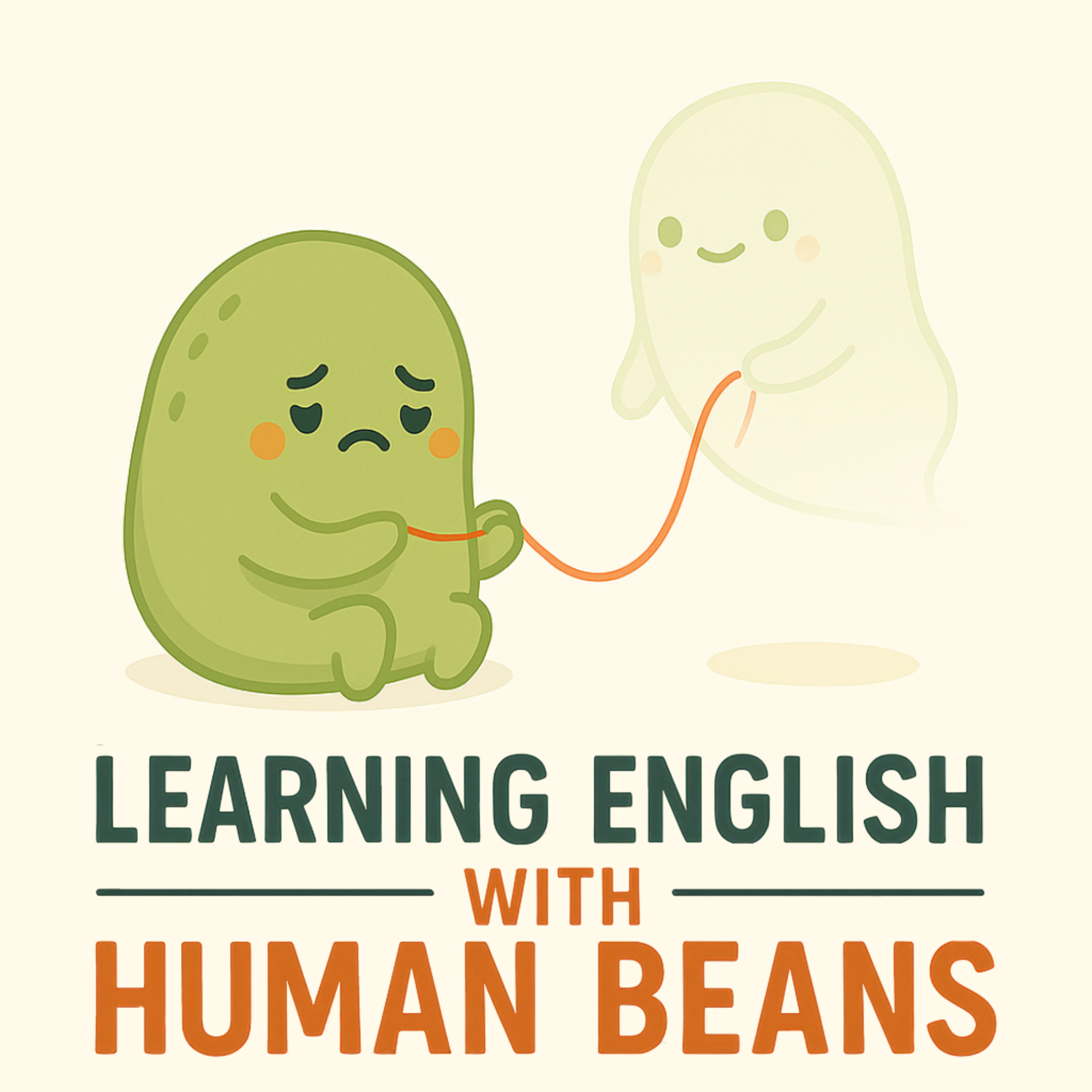
Join George and Alice for an intimate and intellectual exploration of the phenomenon of grief. In this episode, discover why grieving is a true form of psychic "work," how our bodies experience the pain of a "broken heart" on a neurological level, and why the model of a "dance" between loss and restoration is so insightful.
From Freud to neuroscience, from the history of rituals to modern cultural references like the film Coco and the video game Clair Obscur: Expedition 33, this episode deconstructs myths to foster a deeper understanding. Learn the essential vocabulary to approach this sensitive top...
#18 - Spinoza's Philosophy
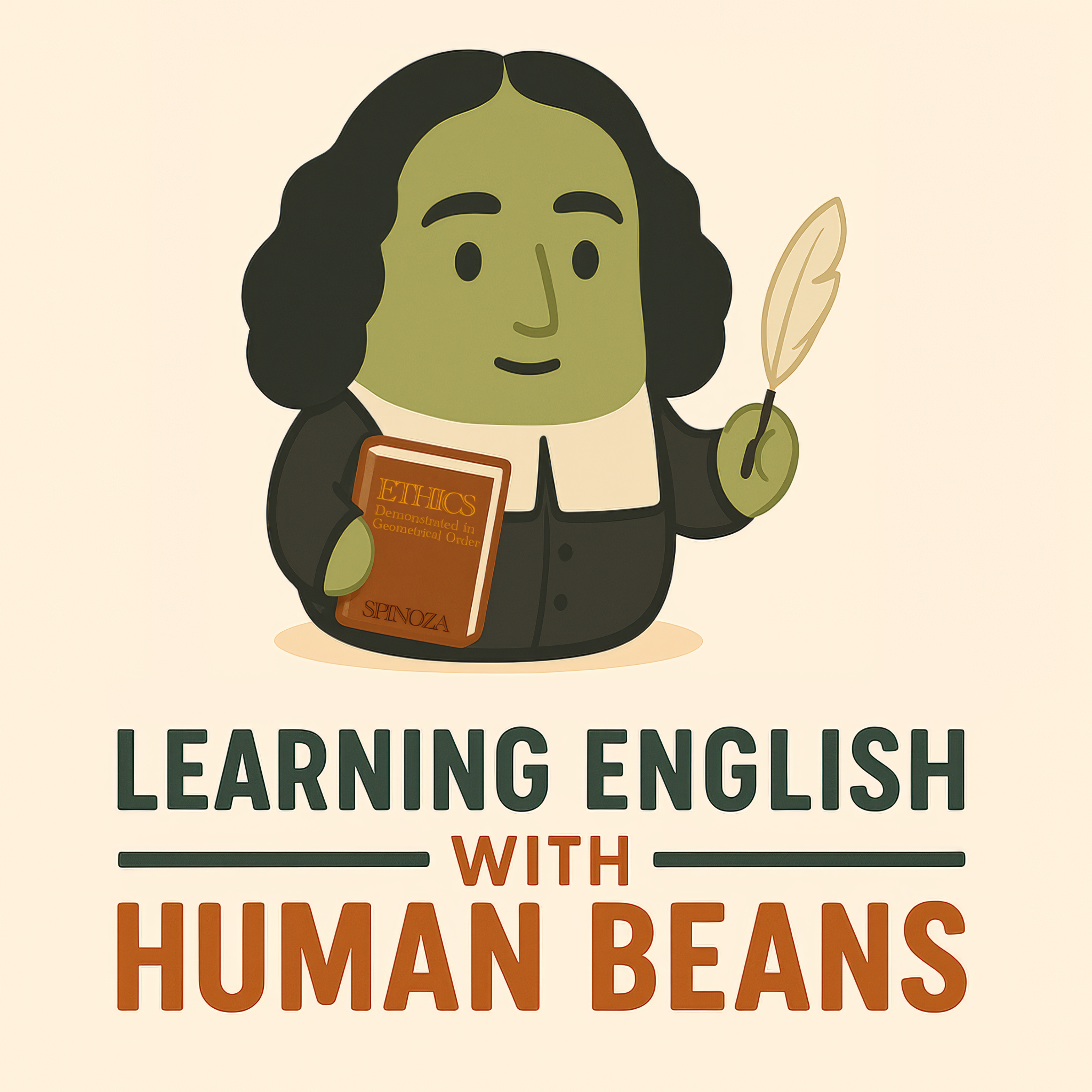
What if a 400-year-old philosophy held the key to modern wellbeing? Join George and Alice as they explore the revolutionary ideas of Baruch Spinoza. Discover how his vision of mind-body unity, emotions as guides, and joy as a compass offers a practical blueprint for a better life—a blueprint now being validated by modern neuroscience.
#17 - The Male Identity Crisis in the 21st Century
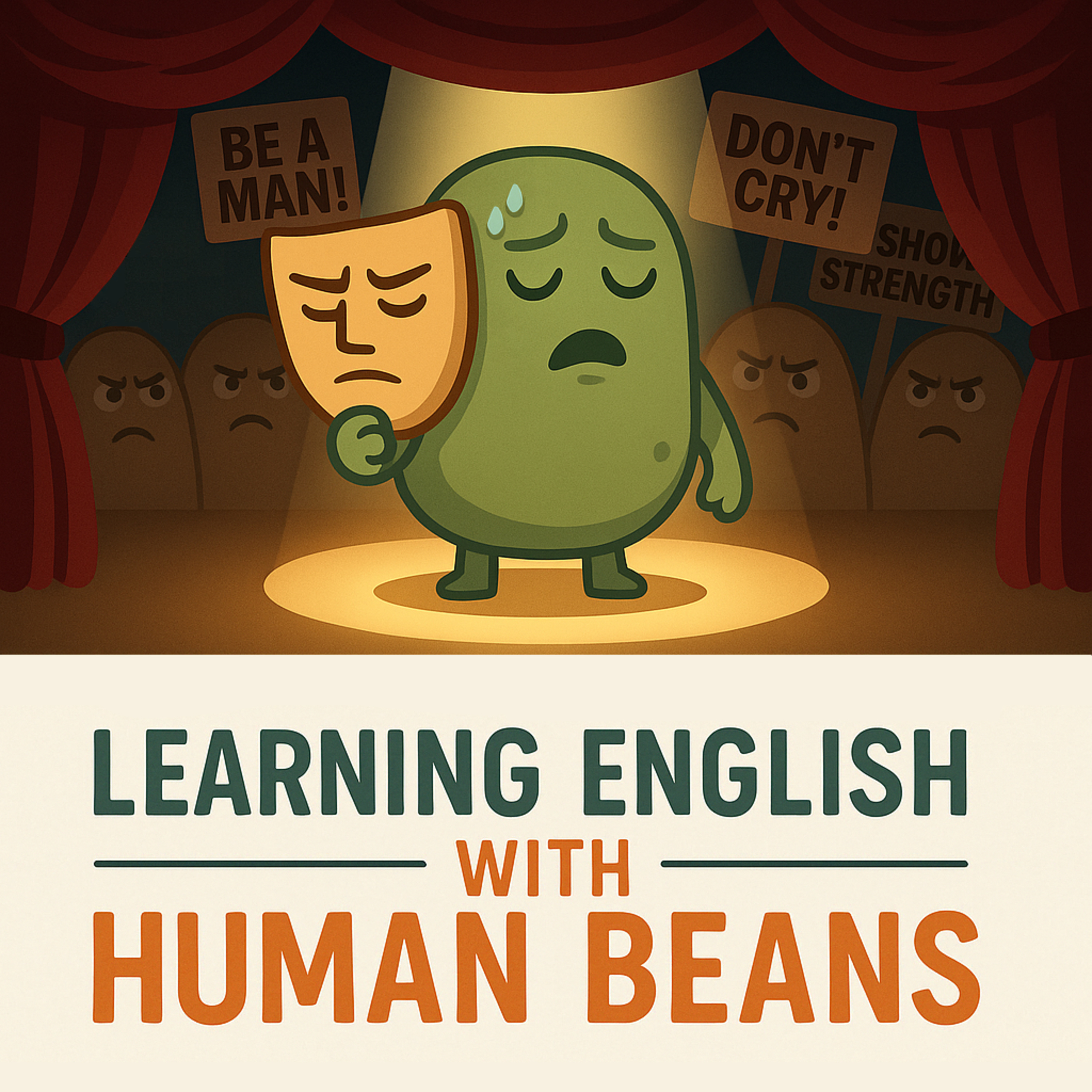
Join us for another thought-provoking episode of "Learning English with Human Beans" as we examine the modern masculinity crisis and the myths surrounding traditional manhood. Discover how cultural expectations of what it means to "be a man" impact mental health, relationships, and society while expanding your English vocabulary around gender studies and social psychology. Perfect for English learners interested in contemporary social issues and anyone questioning traditional gender roles in the 21st century.
Sources:
American Psychological Association, Boys and Men Guidelines Group. (2018). APA guidelines for psychological practice with boys and men. American P...
#16 - Minds in Motion: Recovery, Creativity, and Growth
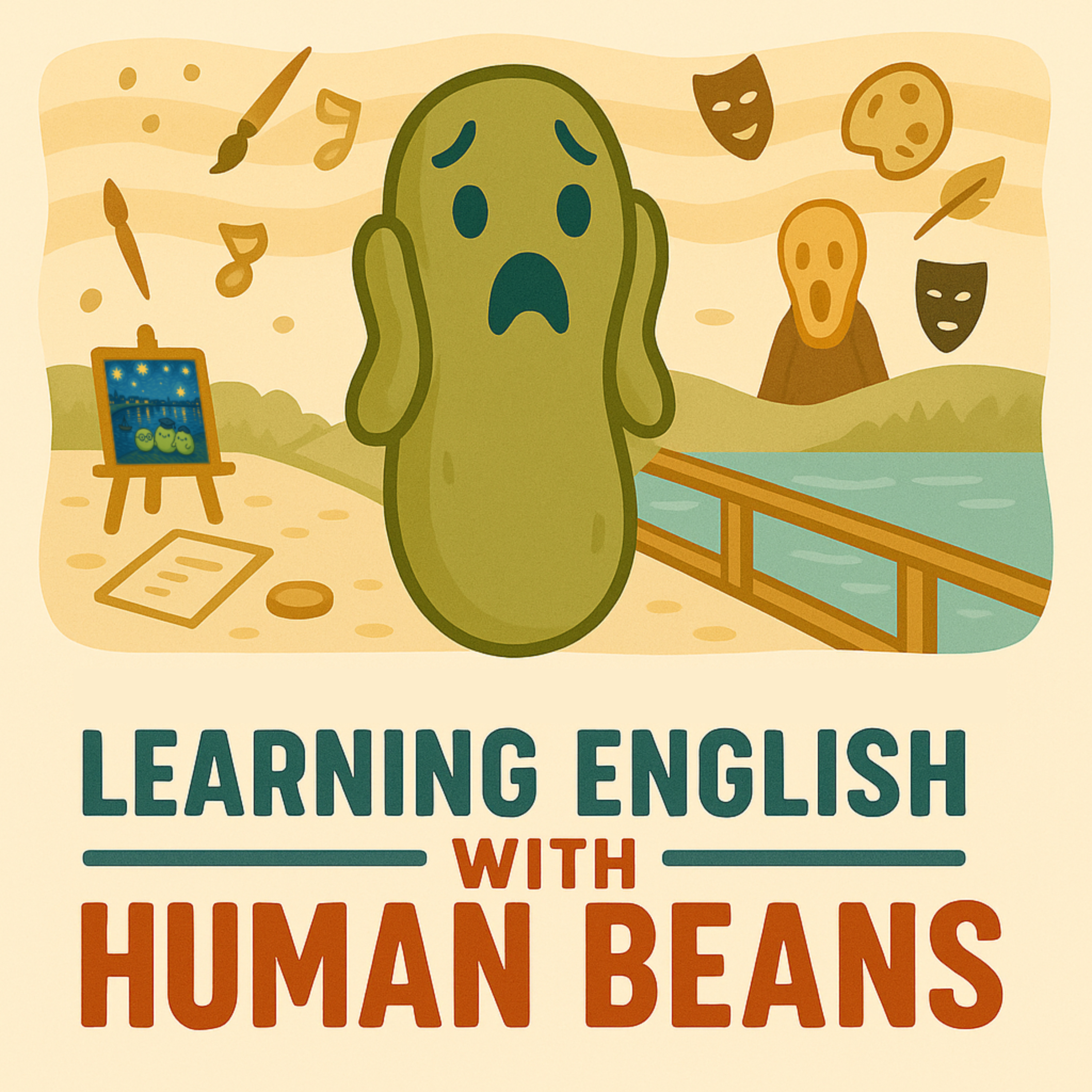
Explore how we tell stories about our minds in this episode of "Learning English with Human Beans." George and Alice unpack the evolving classifications of mental health, the crucial difference between medical recovery and personal healing, and the fascinating link between creativity and psychological conditions. Discover how our understanding of mental health reflects cultural narratives while building essential vocabulary for thoughtful discussions in English.
Sources:
American Psychiatric Association. (2013). Diagnostic and Statistical Manual of Mental Disorders(5th ed.). American Psychiatric Publishing.
Cyrulnik, B. (2001). Les Vilains Petits Canards. Odile Jacob.
Frances, A...
#15 - The Quest for Meaning
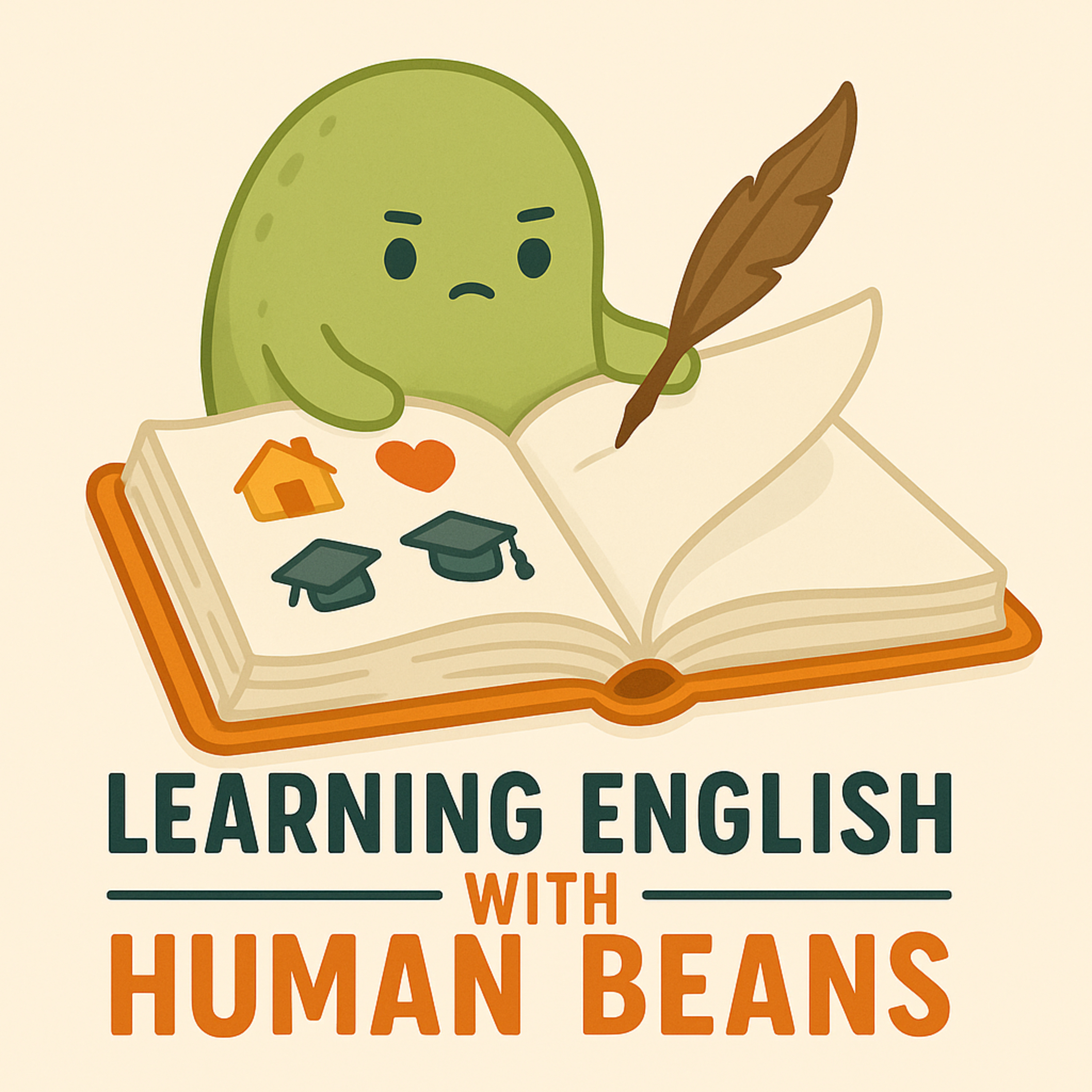
Explore the fundamental human search for meaning in this episode of "Learning English with Human Beans." Join George and Alice as they unpack how we create significance in our lives, understand "closure" as a vital psychological need, and learn how our personal stories shape our sense of purpose. Through everyday examples and psychological insights, discover why meaning-making may be our most essential human journey—while building vocabulary to discuss life's deeper questions in English.
Sources:
Frankl, V. E. (1984). Man's Search for Meaning. Beacon Press.
Yalom, I. D. (1980). Existential Psychotherapy. Basic Book...
#14 - The Feeling Brain: How Emotions Drive Our Decisions
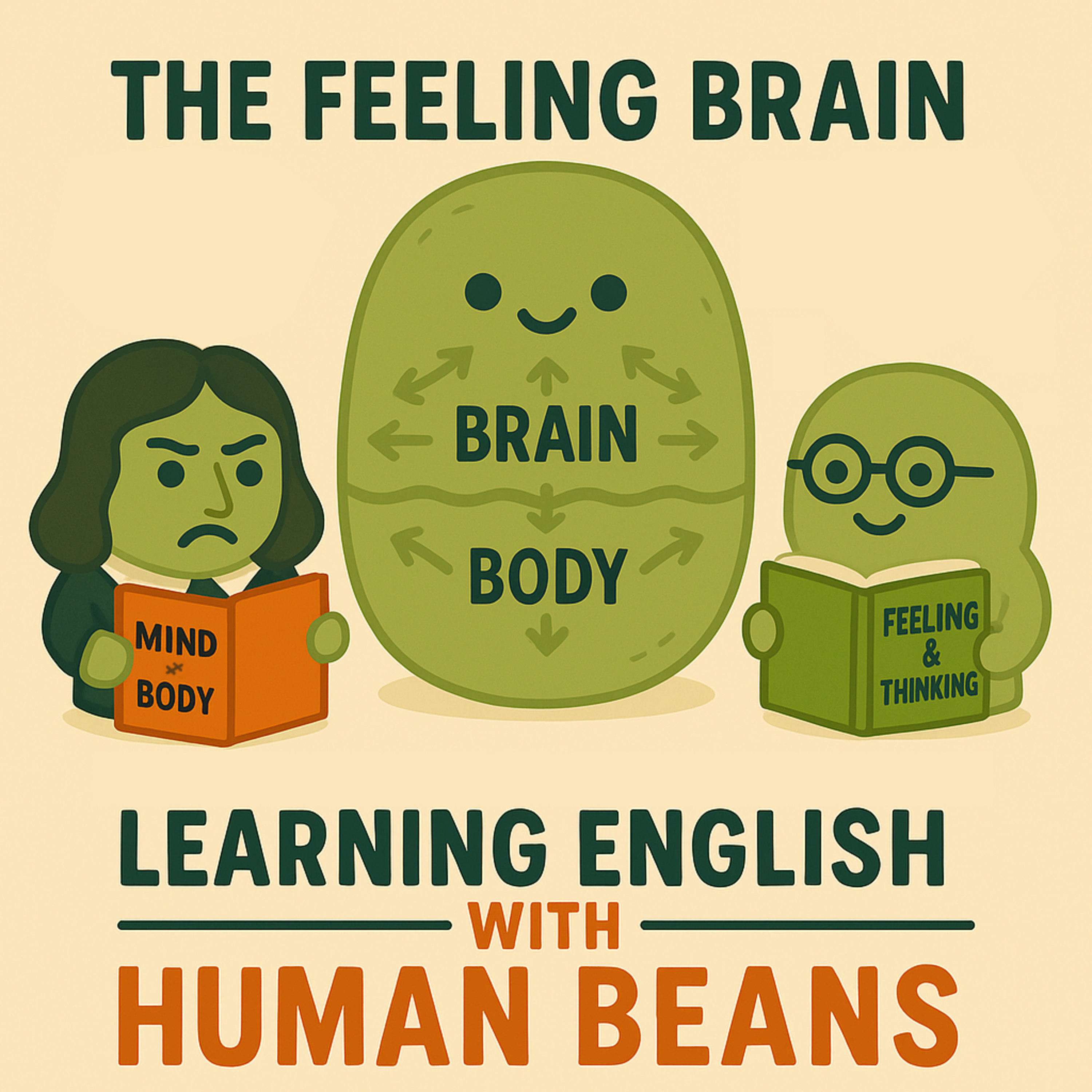
Discover why emotions aren’t obstacles to clear thinking but essential guides in this episode of “Learning English with Human Beans.” George explains neuroscientist Antonio Damasio’s revolutionary work challenging mind-body separation, while Alice adds relatable examples and key vocabulary. Learn the crucial difference between emotions and feelings, explore the fascinating Somatic Marker Hypothesis, and understand why “we are feeling machines that think.” Perfect for expanding your English vocabulary while gaining insights into the science of decision-making and consciousness.
Sources:
Damasio, A. R. (1994). Descartes’ Error: Emotion, Reason, and the Human Brain. New York: Putnam.<...
#13 - The Science of Sleep
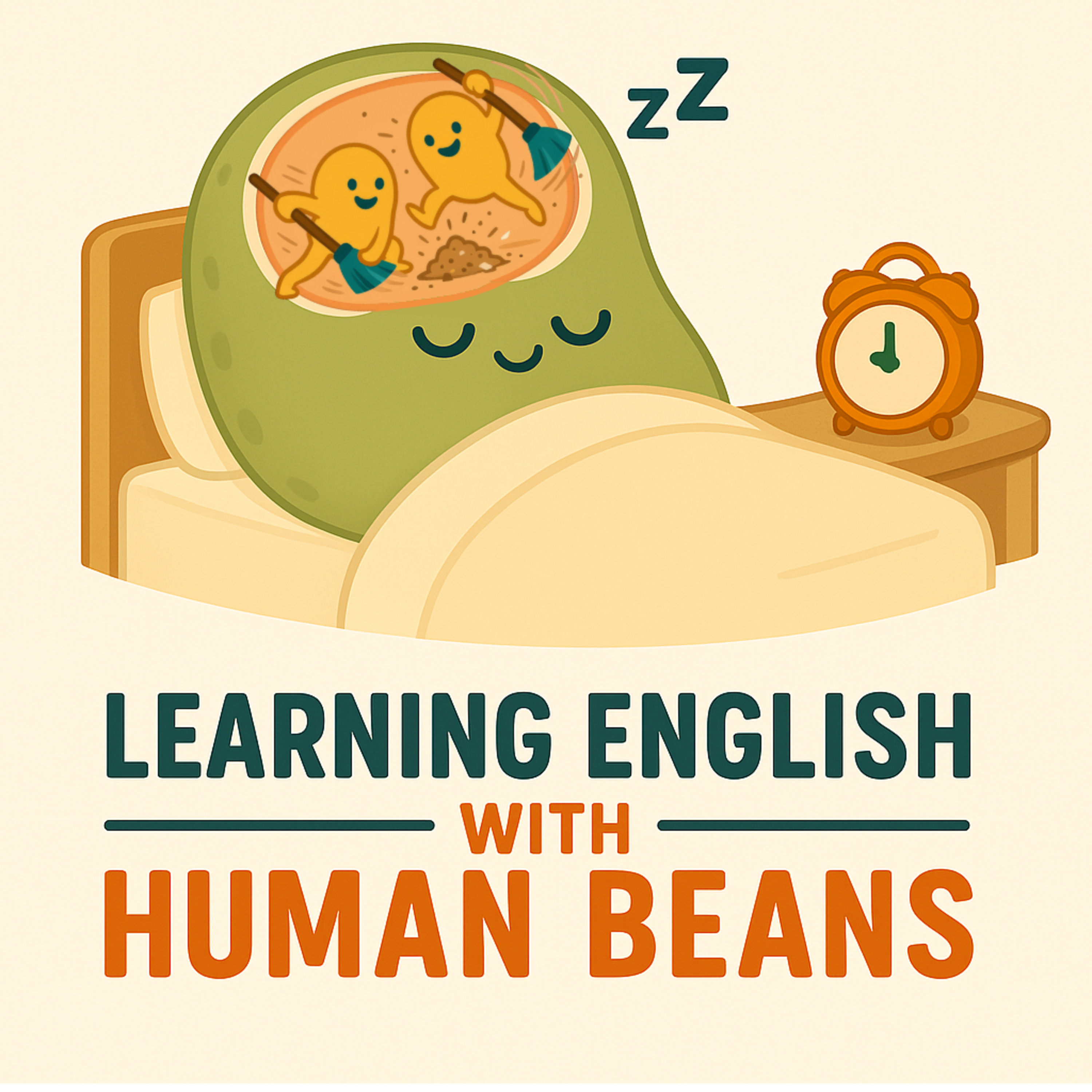
Discover the vital science behind your nightly rest in this episode of “Learning English with Human Beans: The Science of Sleep.” Explore how sleep cycles work, why your brain’s glymphatic system cleanses itself at night, the hidden costs of sleep debt, and practical strategies to optimize your slumber—all while building key English vocabulary.
Sources:
Archer, S.N., Robilliard, D.L., Skene, D.J., Smits, M., Williams, A., Arendt, J., von Schantz, M. (2003). “A length polymorphism in the circadian clock gene PER3 is linked to delayed sleep phase syndrome and extreme diurnal pr...
#12 - The Authority Paradox
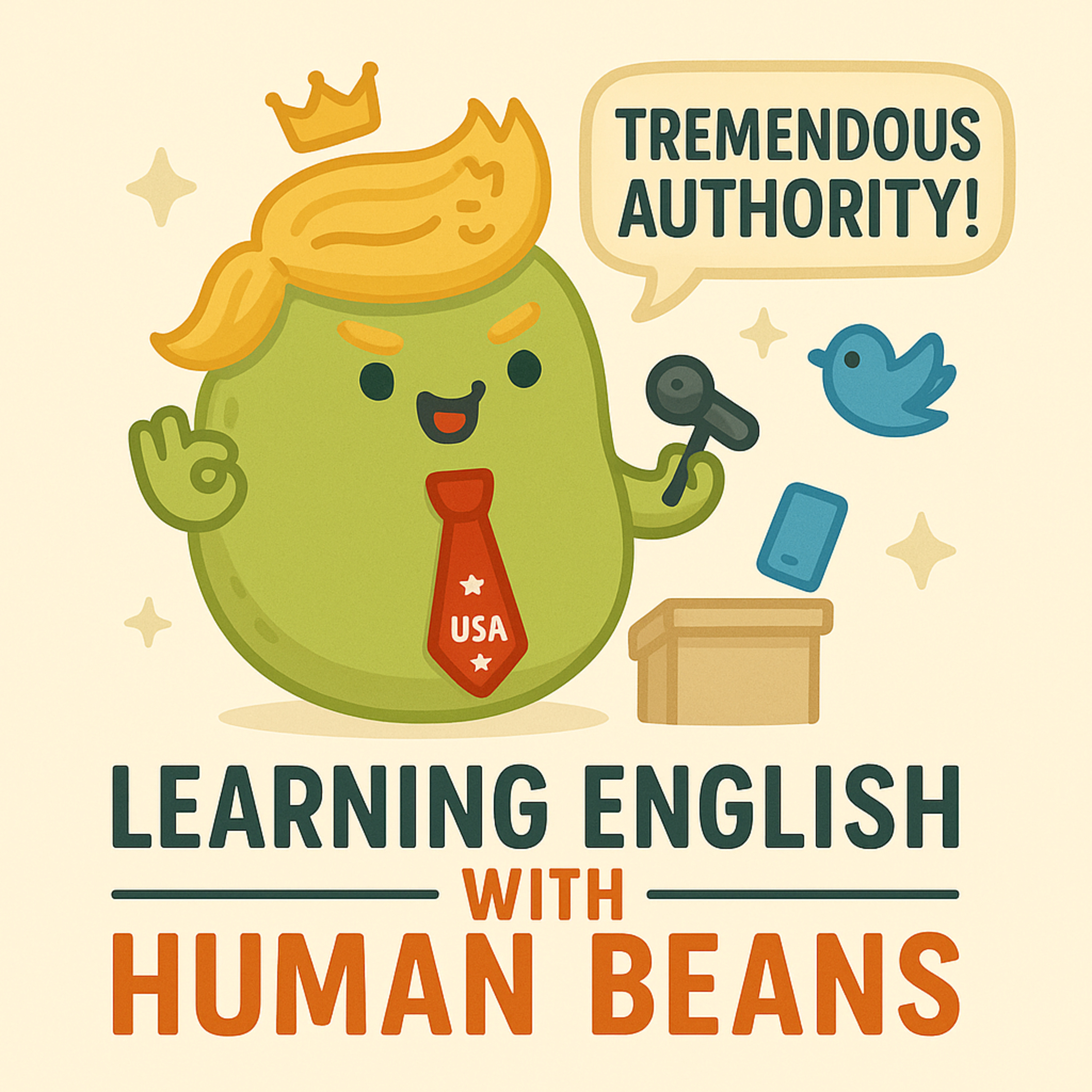
Why do humans both seek out authority figures and resist them? Discover the fascinating psychology behind our complex relationship with authority in this episode of "Learning English with Human Beans." From classroom dynamics to political paradoxes, we explore how the desire for leadership shapes American society while building essential vocabulary to discuss power, governance, and social structures in English.
References:
Arendt, H. (1954). "What is Authority?" In Between Past and Future: Eight Exercises in Political Thought. Viking Press.
Canivenc, S. (2012). "Autogestion et nouvelles formes organisationnelles dans la société de l'information, de...
#11 - What If...? - Exploring Counterfactual Thinking
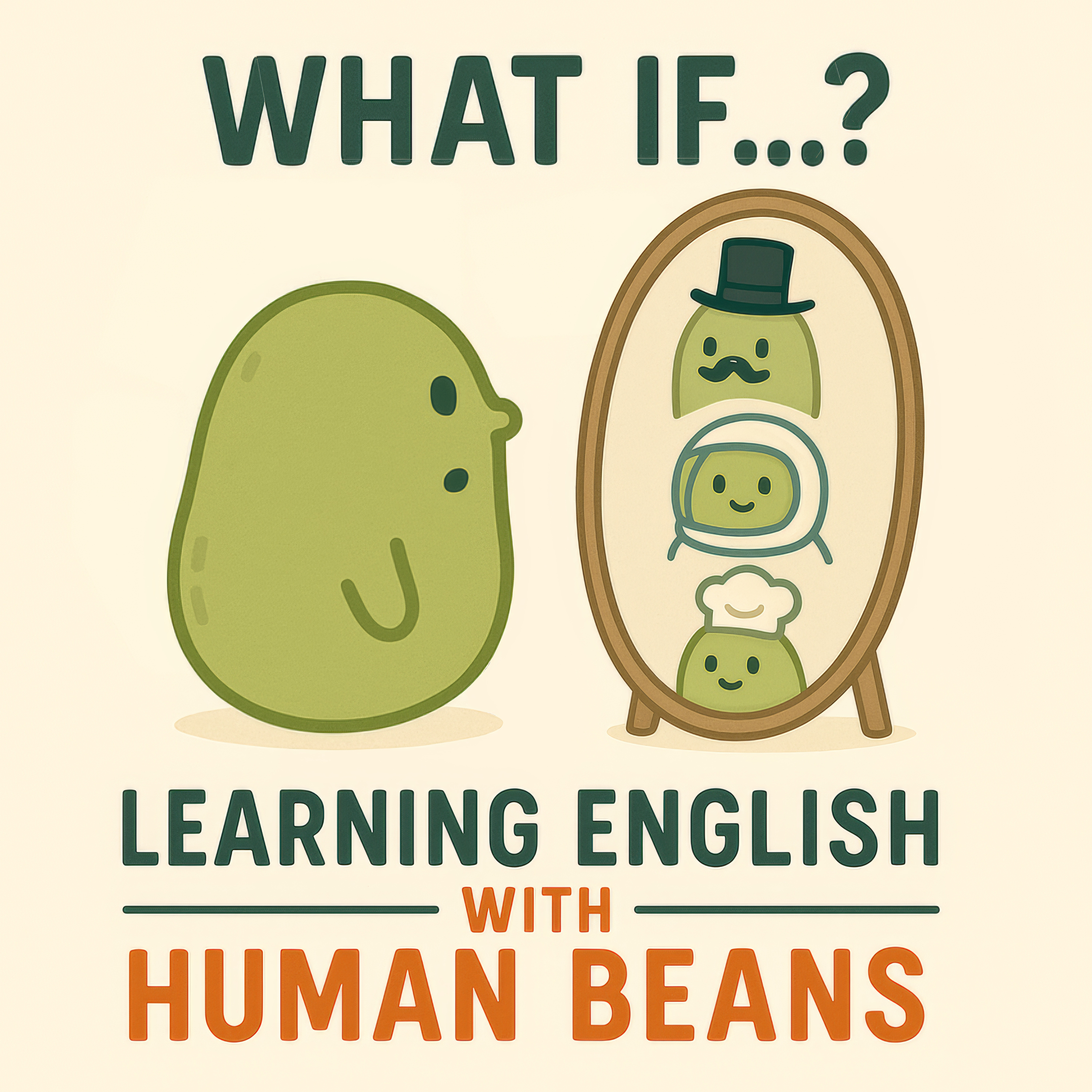
Discover how our minds play “what if” games to learn from the past and manage emotions in this episode of Learning English with Human Beans: “What If...? – Exploring Counterfactual Thinking.” We unpack the psychology behind imagining alternative outcomes, show how these thoughts help-or sometimes hinder-us, and illustrate the concept with everyday examples and popular fiction.
References:
Roese, N. J., & Olson, J. M. (1995). What Might Have Been: The Social Psychology of Counterfactual Thinking. Lawrence Erlbaum Associates.
Roese, N. J. (1997). Counterfactual Thinking. Psychological Bulletin, 121(1), 133–148 .
Roese, N. J. (2007). The Functional Theory of Counterfac...
#4 - In the Age of Fake News: Developing Critical Thinking
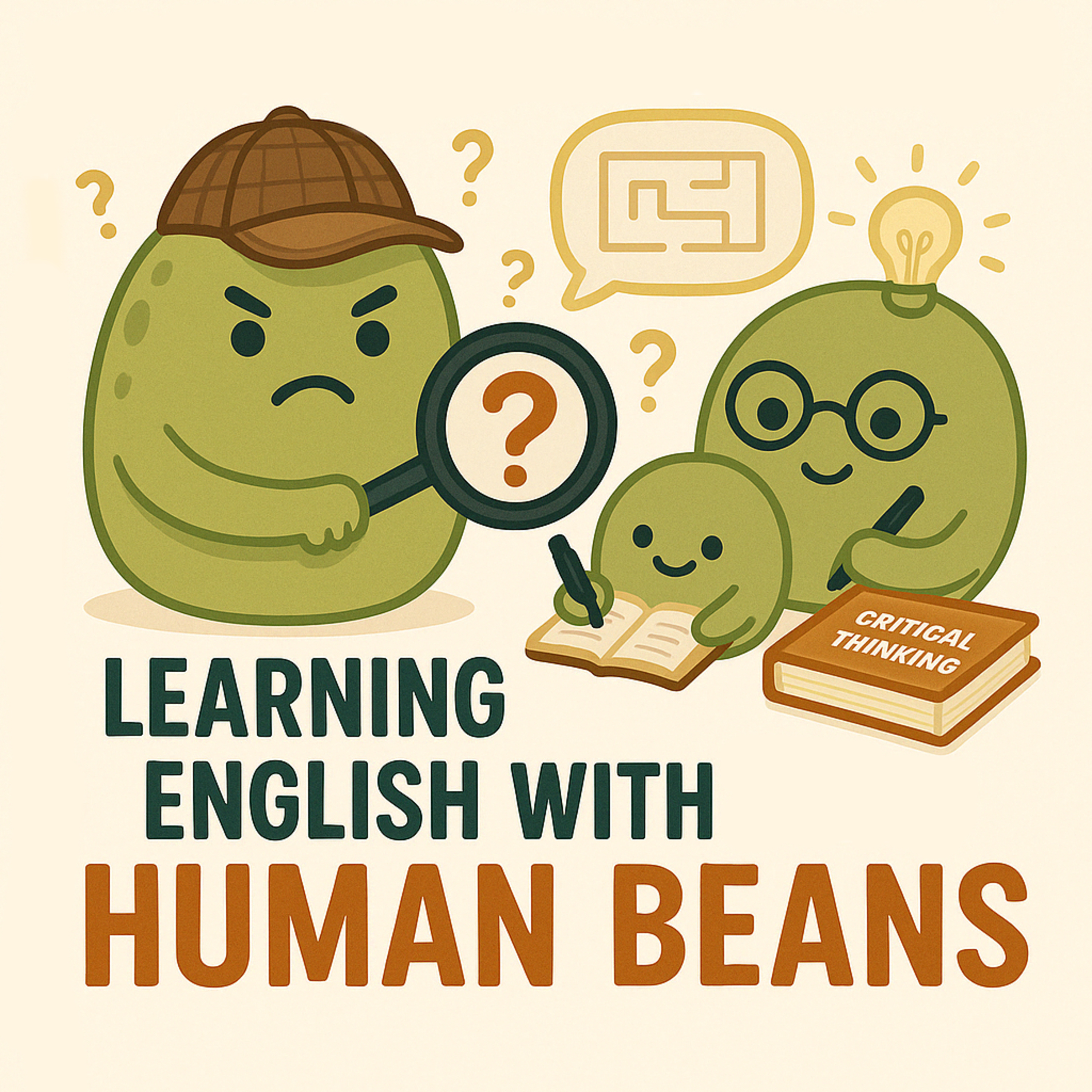
Learn English while discovering how to spot fake news! In this episode, we explore why false information spreads so quickly and how our minds can be tricked. Using everyday vocabulary and clear examples, we'll help you understand important concepts like "confirmation bias" and "information bubbles" while improving your English listening skills. You'll pick up useful phrases to discuss media literacy while learning practical tips for checking sources and recognizing manipulation techniques. A perfect blend of language practice and essential life skills for navigating today's information-filled world!
References:
- Kahneman, D. (2011). *Thinking, Fast...
#10 - The Mind-Body Connection
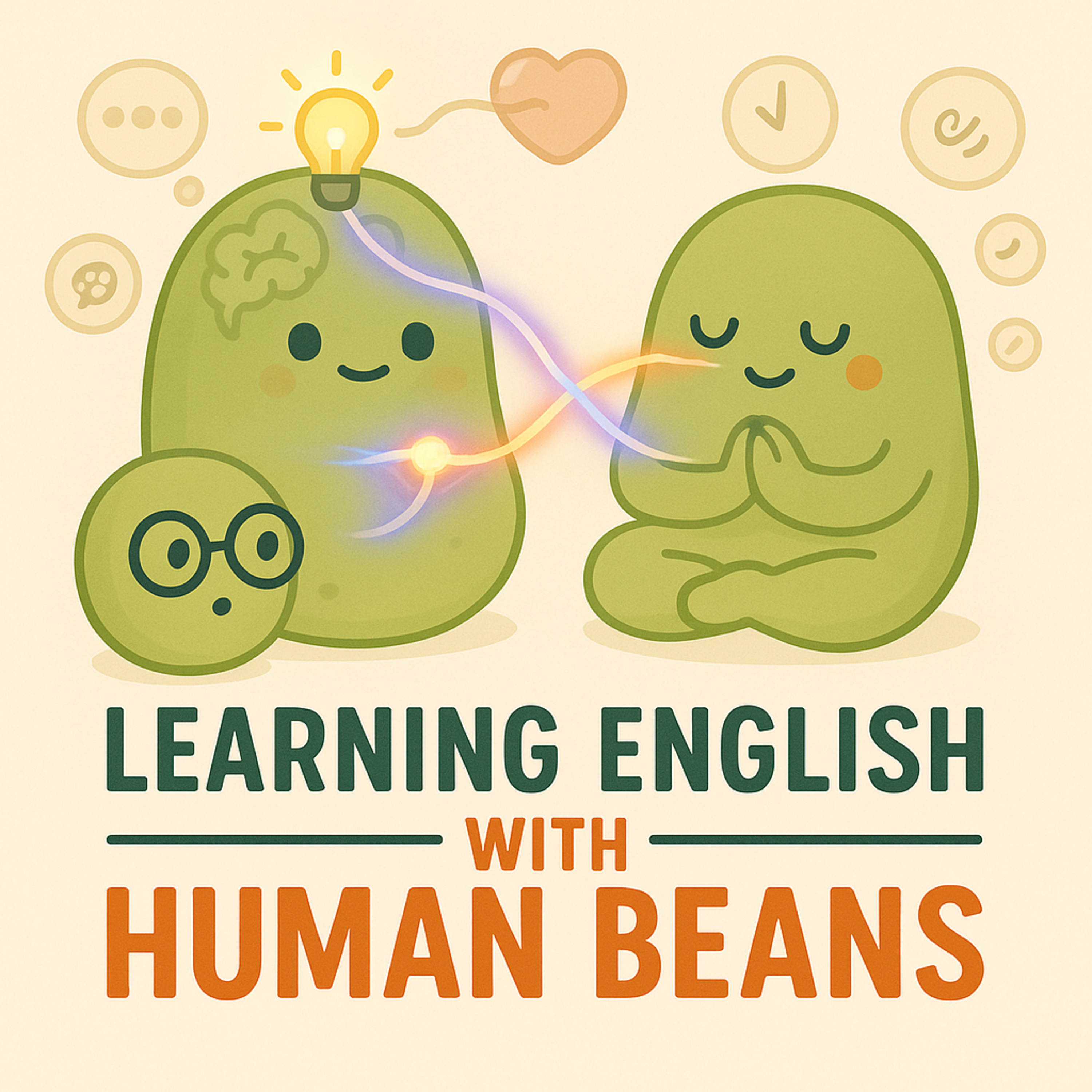
In our latest “Learning English with Human Beans” episode, discover the fascinating science of mind-body connections. Learn how thoughts and emotions directly impact physical health, explore innovative therapies like neurofeedback and hypnosis, and gain practical vocabulary to discuss stress, meditation, and holistic wellness in English. Your mind and body are constant conversation partners-join us to understand their language.
References:
- Benson, H., & Klipper, M. Z. (2000). The Relaxation Response. HarperCollins.
- Buckley, T., et al. (2015). “Angry outburst could trigger heart attack within hours.” European Heart Journal: Acute Cardiovascular Care.
- Danner...
#9 - The Einstein Enigma - Review
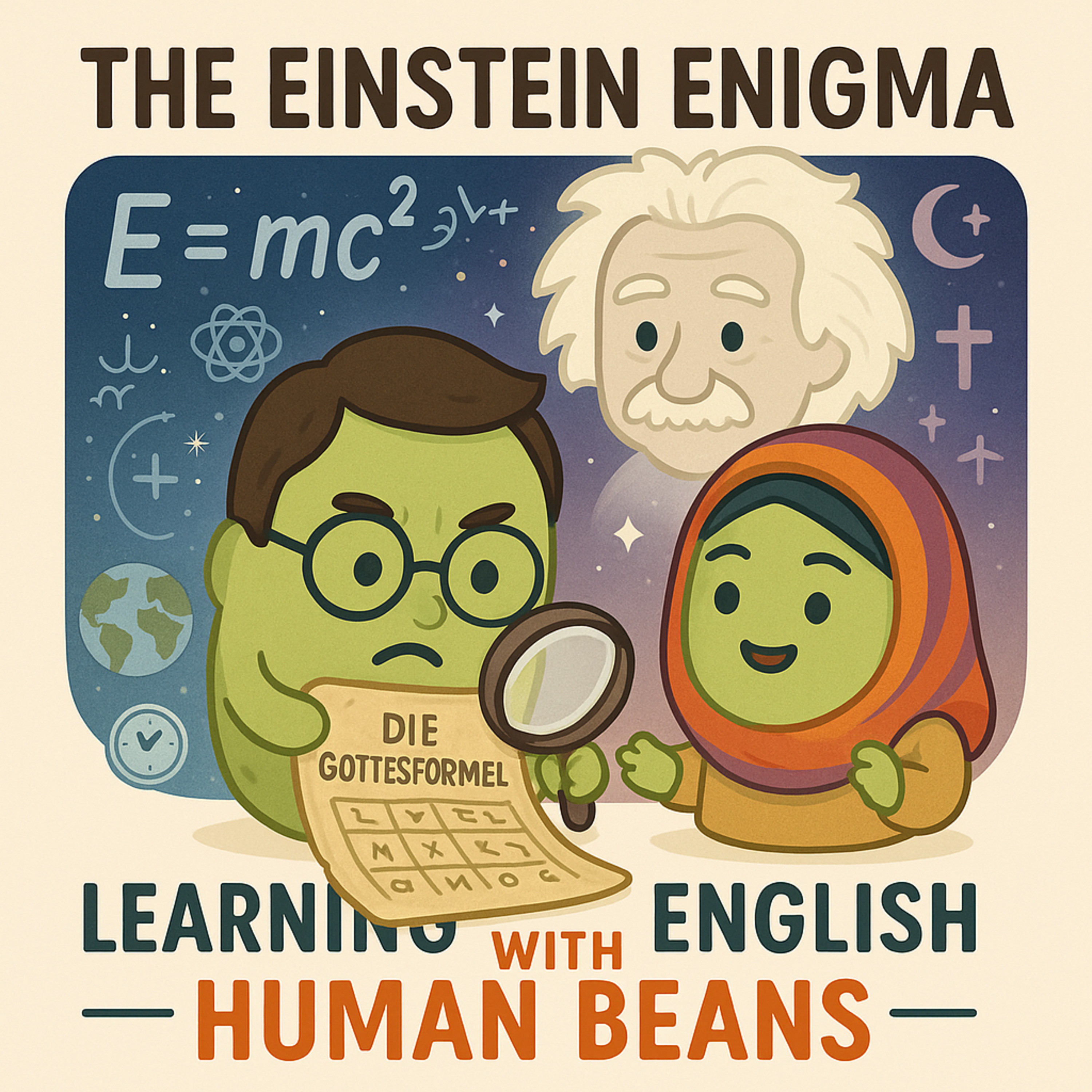
Join us as we explore José Rodrigues dos Santos' international bestseller "The God Formula" (or "The Einstein Enigma"). This thrilling novel blends quantum physics, global espionage, and profound spiritual questions as a cryptologist races to decode Einstein's secret manuscript supposedly proving God's existence. Perfect for expanding your English vocabulary while contemplating the intersection of science and faith.
#8 - Meaningless on the Clock: The Bullshit Jobs Theory
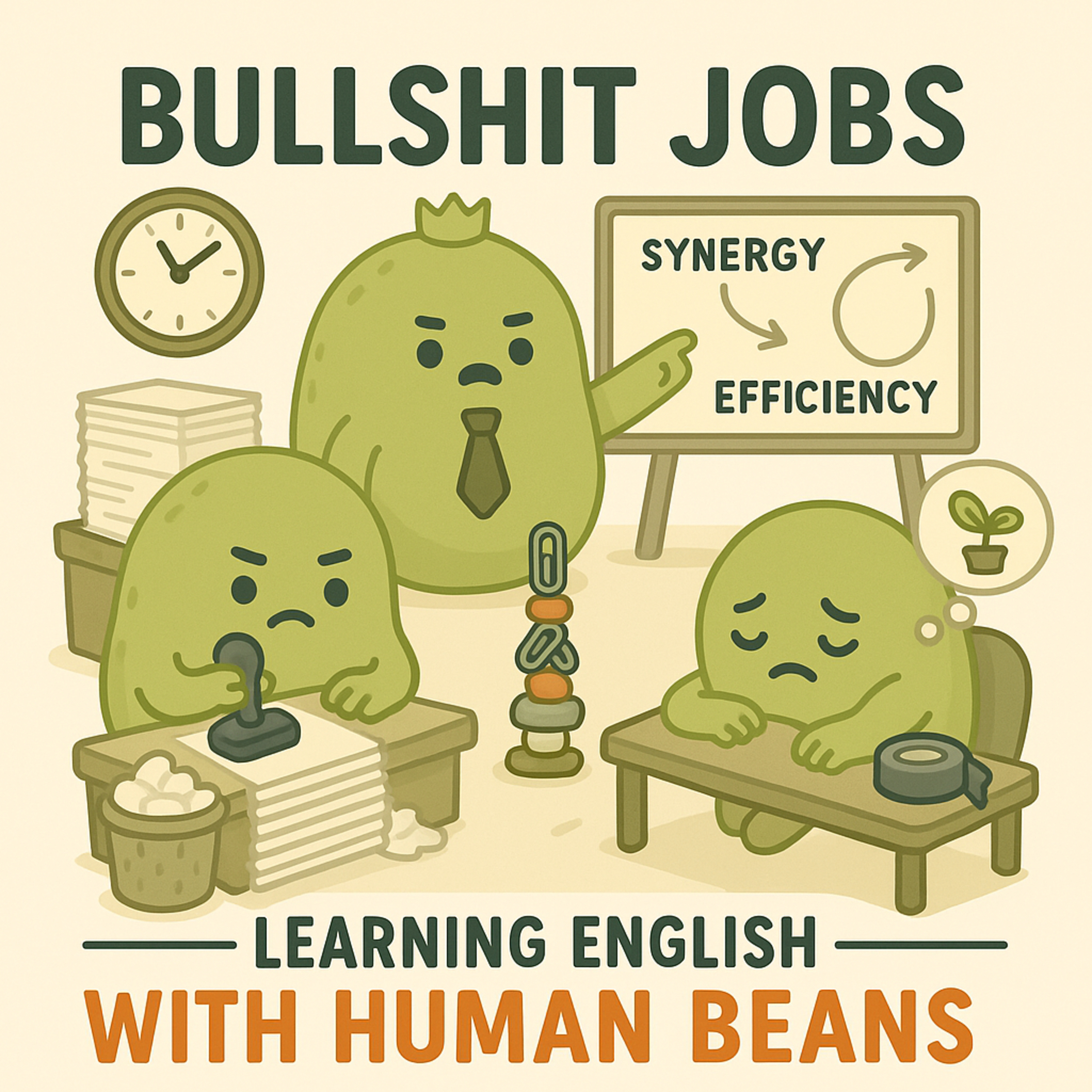
Discover the hidden epidemic of pointless work in this episode of “Learning English with Human Beans.”
We unpack David Graeber’s theory of “bullshit jobs,” examine five key categories-from flunkies to taskmasters-and explore the surprising mental-health costs of meaningless tasks. Improve your English vocabulary as you rethink what makes work truly valuable.
References:
- Graeber, D. (2013). “On the Phenomenon of Bullshit Jobs.” *Strike!* essay introducing the concept and collecting hundreds of worker testimonials.
- Graeber, D. (2018). *Bullshit Jobs: A Theory*. Simon & Schuster. Expands the 2013 essay into a full, evidence-driven book identifying five types of...
#7 - 24 Hours in the Life of a Woman - Review
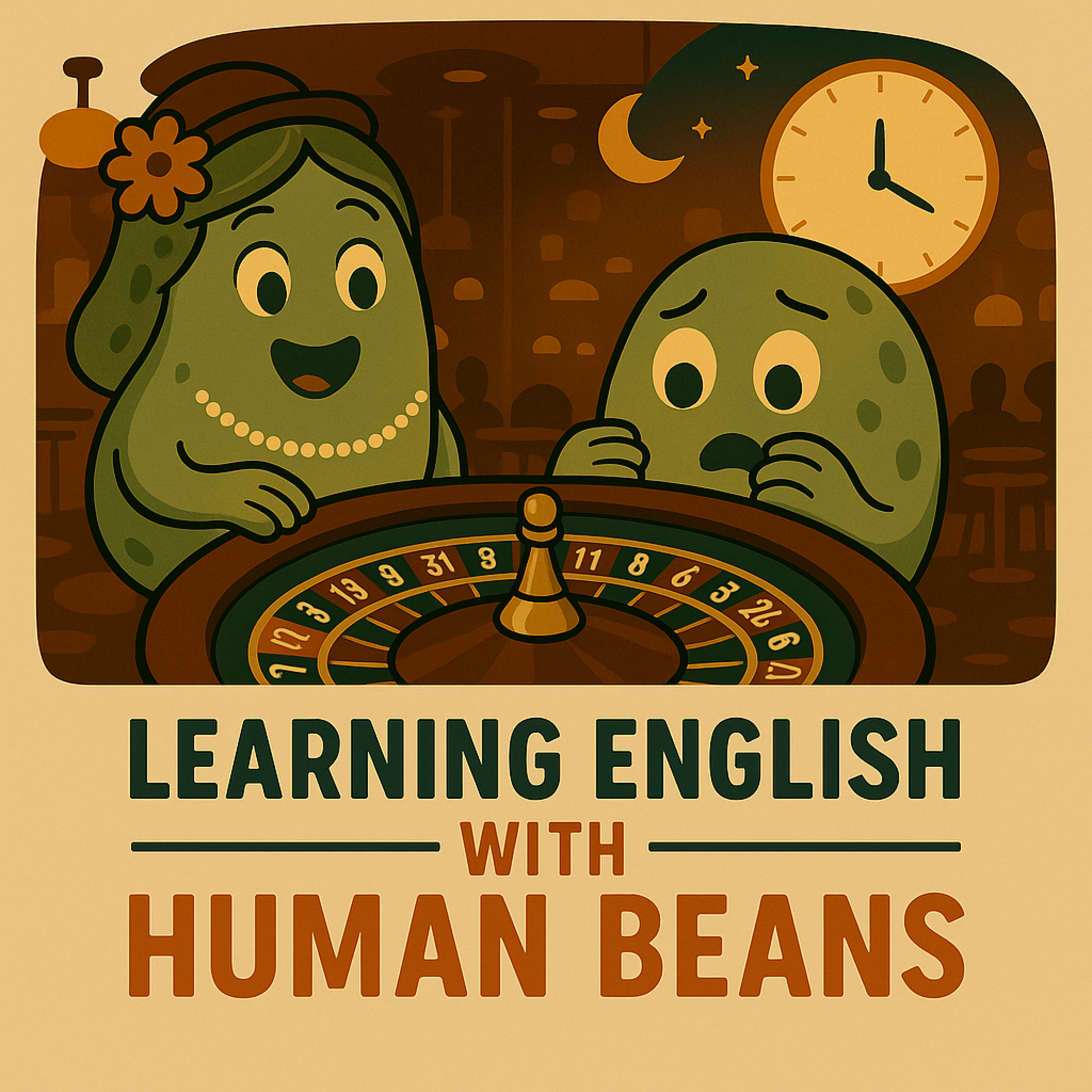
Join us today for "Learning English with Human Beans" as we analyze Stefan Zweig's powerful novella "24 Hours in the Life of a Woman" with special guest Alice. Discover how a brief encounter can transform a lifetime while expanding your English vocabulary. A perfect blend of literary insight and language learning!
#6 - Why Do We Spend So Much Time on Our Smartphones?
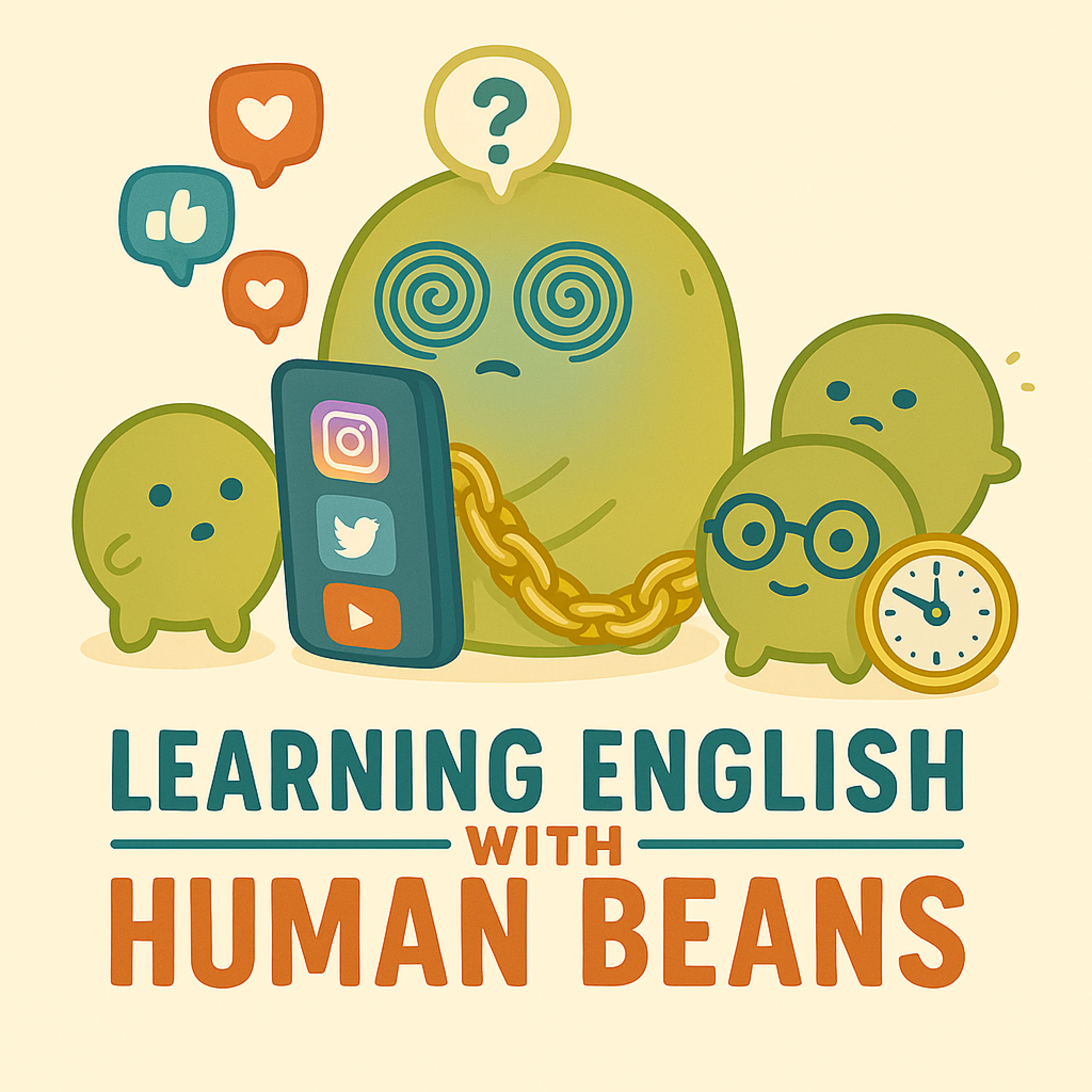
Ever wondered why you just can’t put your smartphone down, even when you know you should? In this episode of "Learning English with Human Beans," we uncover the hidden traps of social media and reveal how apps are designed to keep you hooked. Join us for a fascinating look at the psychology behind our digital habits—while picking up new English skills along the way!
References:
Montag, C. & Hegelich, S. (2020).
Understanding detrimental aspects of social media use: Will the real culprits please stand up.
Frontiers in Soci...
#5 - Past Lives - Review
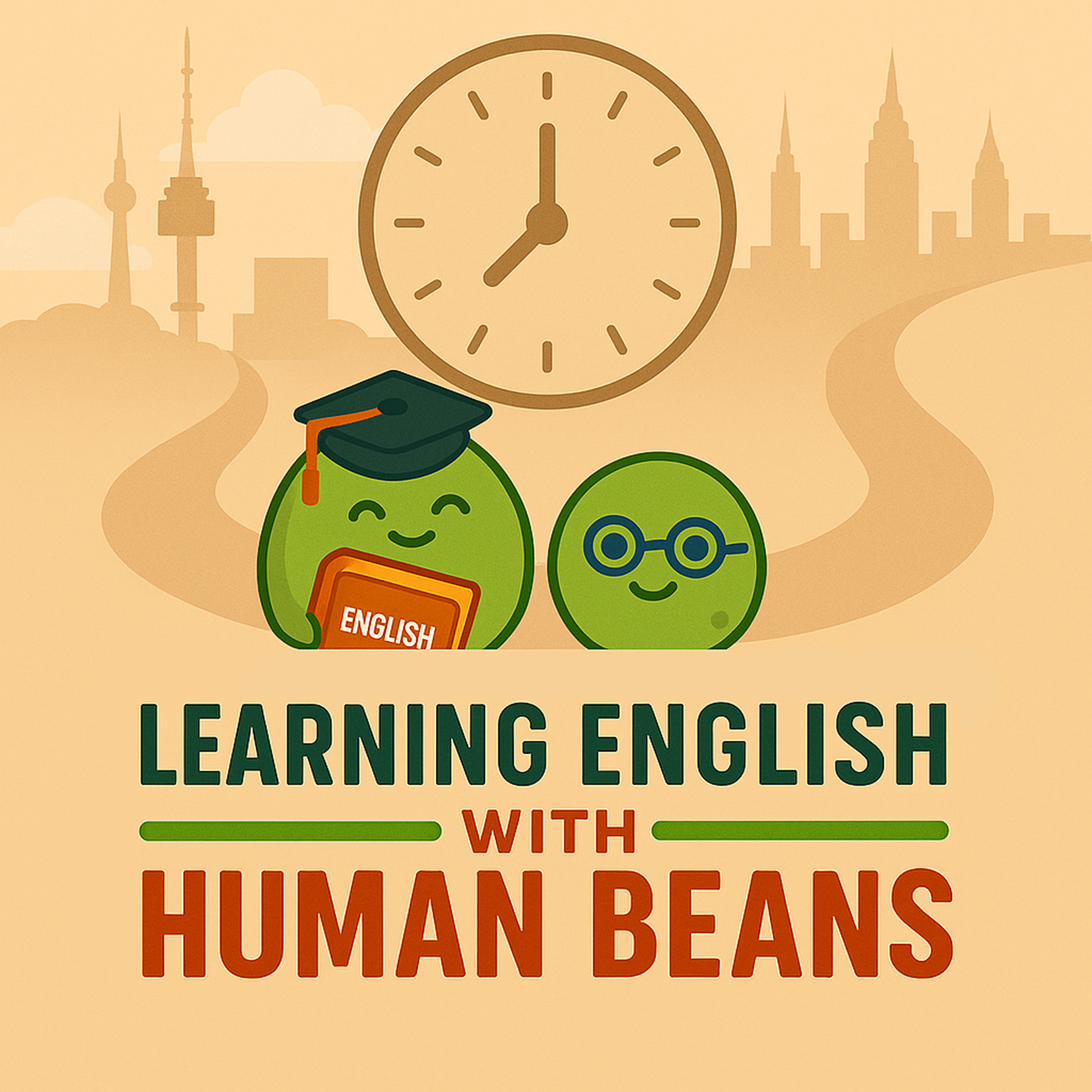
Welcome to "Learning English with Human Beans"! In today's special episode, we'll be exploring Celine Song's beautiful film "Past Lives" - a thoughtful meditation on love, identity, and the roads not taken. Join us as we examine the Korean concept of "inyeon" (destiny between people), cultural identity, and the film's refreshing take on relationships. Whether you're looking to expand your English vocabulary or dive into meaningful cultural discussions, this analysis has something for everyone. Spoiler warning: we'll be discussing key moments from the film, so you might want to watch it first if you haven't already!
#3 - Failing Forward: How Grit Shapes Success
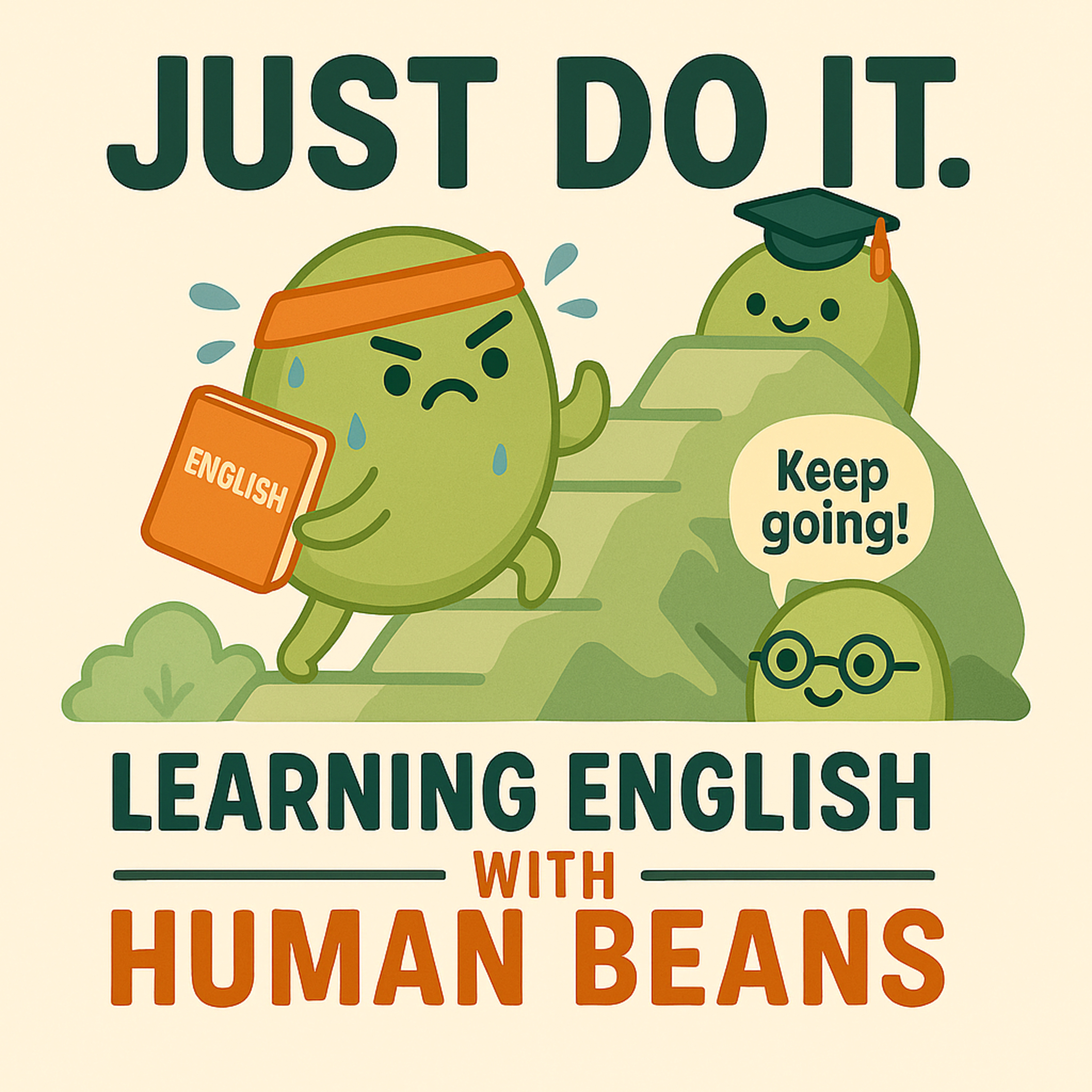
What makes some people bounce back from failure while others give up? In this episode of "Learning English with Human Beans," we explore the power of grit - that special mix of passion and perseverance that helps turn setbacks into success. Whether you're learning English, changing careers, or facing any difficult challenge, this conversation about resilience will help you understand how to "fail forward" on your journey to success. Join us for practical insights on developing the determination to keep going when things get tough!
Academic References :
Philosophy and Theoretical Foundations
<...#2 - The Sibling Survival Guide
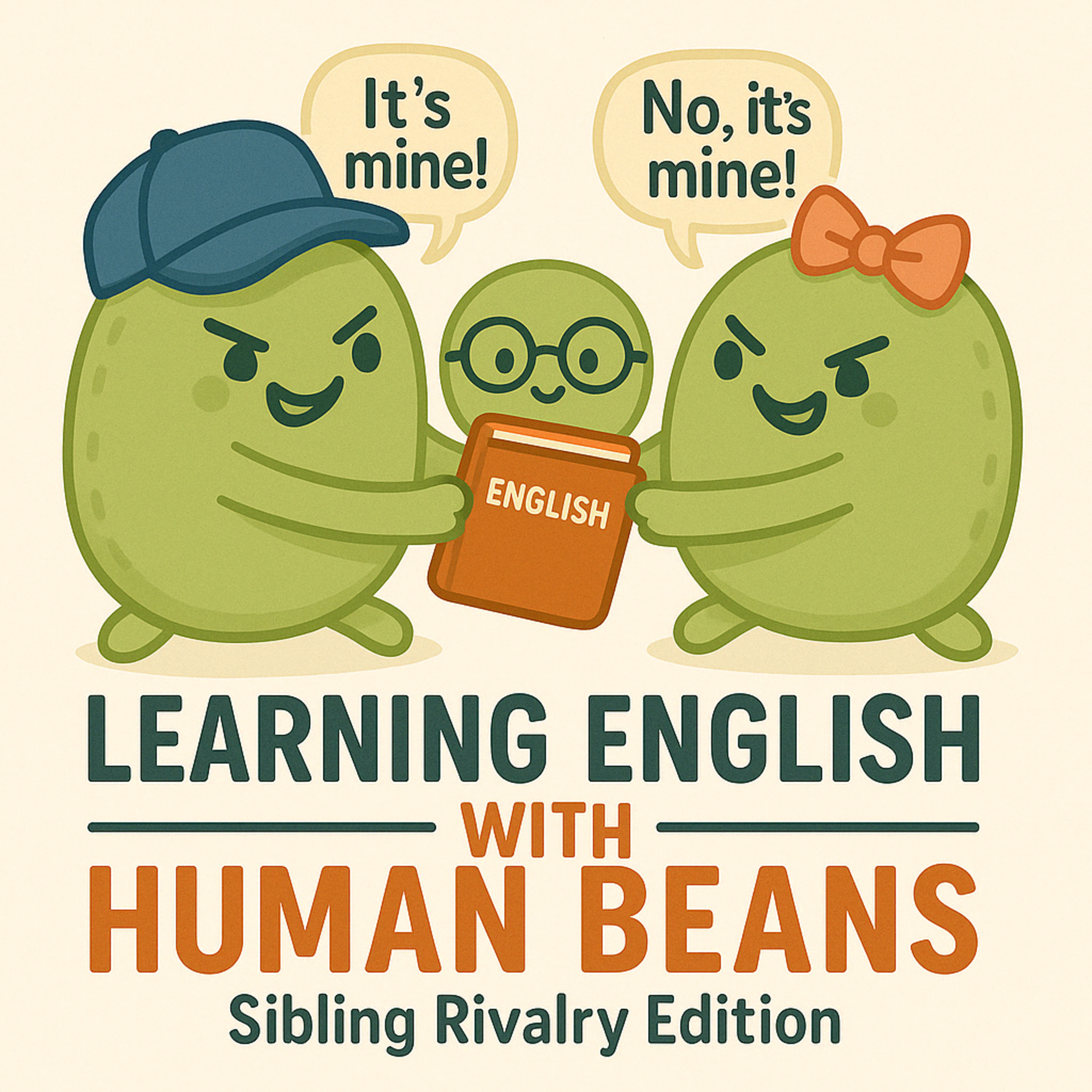
Ever fought over the TV remote with your sibling or felt that twinge of jealousy when mom praised your brother instead of you? You're not alone! Join us on "Learning English with Human Beans" as we explore the fascinating psychology behind sibling rivalry - from our evolutionary past to how childhood squabbles shape our adult relationships. Discover why these complex bonds might be your first and most important training ground for life.
#1 - Territories AI Cannot Conquer

Can machines think? Create? Feel? As artificial intelligence challenges what makes us uniquely human, we face what philosophers call our "fourth narcissistic wound." In this episode, improve your English vocabulary and expression while exploring AI's profound impact on our identity, creativity, and relationships. From cognitive offloading in education to emotional attachments with algorithms, discover how AI serves as both tool and mirror—reflecting our capabilities, biases, and limitations. Join us for an engaging conversation at the intersection of technology and humanity, designed for intermediate to advanced English learners who want to think deeply while enhancing their language skills.